In 1787, Col. David Humphreys wrote: “Few inventions could be more happily calculated to diffuse the knowledge and preserve the memory of illustrious characters and splendid events, than medals.”
The Revolutionary War colonel and aide-de-camp to Gen. George Washington made that statement more than a decade after the Continental Congress first instituted the tradition of issuing medals to recognize and show appreciation for distinguished military service in 1776. Nearly two-and-a-half centuries later, his words still ring true. Now, Stacker is taking a look at military medals and what they mean.
The awarding of medals remains one of the most time-honored, cherished, and sacred traditions in the culture and history of the United States Armed Forces. All five branches—the Army, Navy, Air Force, Marines, and Coast Guard—award medals to standout troops and the units in which they serve. In many cases, the honor is extended to members of the Reserves and National Guard. Military medals can recognize bravery or gallantry, heroism, or meritorious service. They may be awarded for actions during peacetime or war, in defense of civilians or fellow service members, and they can be earned for actions taken during the course of combat or outside of direct military conflict.
Some medals denote extraordinary service in aerial flight, some are specific to ground operations, and others are reserved only for those in the Sea Services. There are medals specific to the issuing branch, while others can be bestowed on any member of any branch of service. Medals can indicate service in a specific conflict, like Afghanistan or the Global War on Terror, or honor individual service. There are even medals issued to entire units.
Here’s a look at the most important and storied medals issued by the United States Armed Forces. Keep reading to learn what they mean, what it takes to earn one, who issues them, and where they rank in terms of prominence.
Medal of Honor

Mark Wilson // Getty
The Medal of Honor is the highest and most coveted military decoration the U.S. government can bestow on a member of the Armed Forces. Presented by the president in the name of Congress, there are three distinct variations: one for the Air Force, one for the Army, and one for the Coast Guard, Marine Corps, and Navy. According to the U.S. Department of Defense, the Medal of Honor “is conferred only upon members of the United States Armed Forces who distinguish themselves through conspicuous gallantry and intrepidity at the risk of life above and beyond the call of duty.”
Distinguished Service Cross
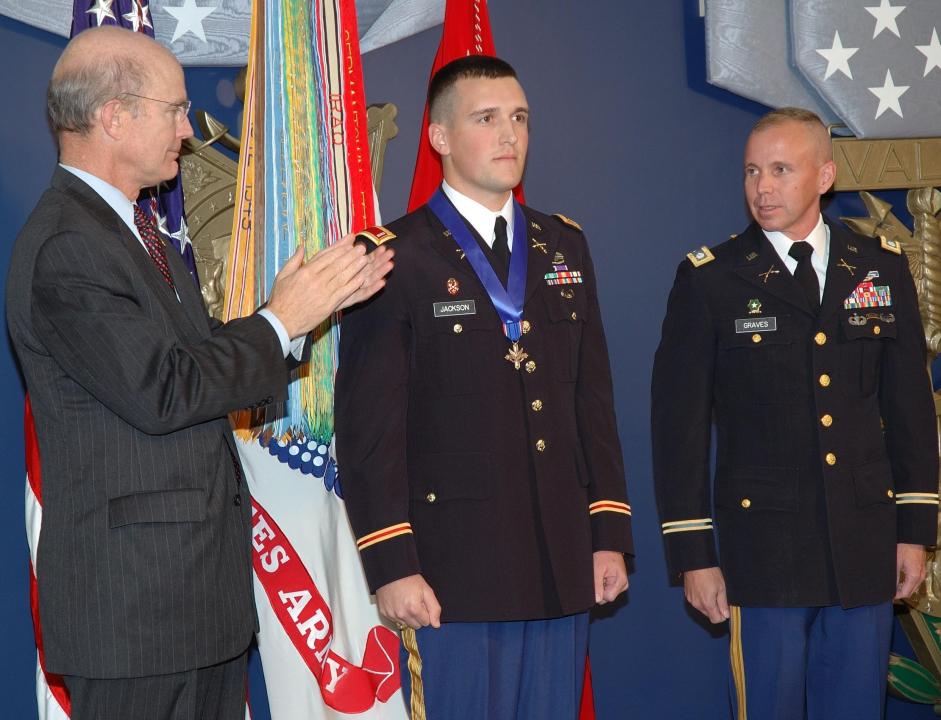
J. D. Leipold // Wikimedia Commons
The Distinguished Service Cross is the second-highest honor that can be awarded to a member of the Army. It recognizes heroism in combat that is extraordinary enough to rise above the requirements for all other medals, save the Medal of Honor.
Navy Cross
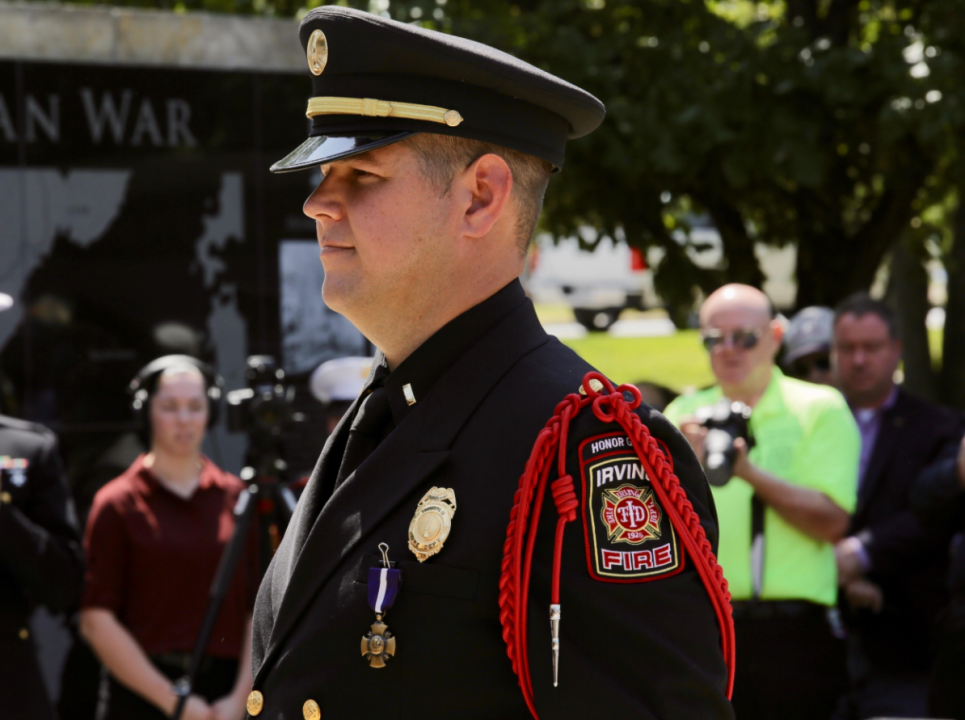
U.S. Marine Corps
Like the Distinguished Service Cross, the Navy Cross recognizes heroism of such a high degree that it supersedes all medals except the Medal of Honor. It is awarded to members of the Navy or members of the Coast Guard when operating under Navy command.
Coast Guard Cross
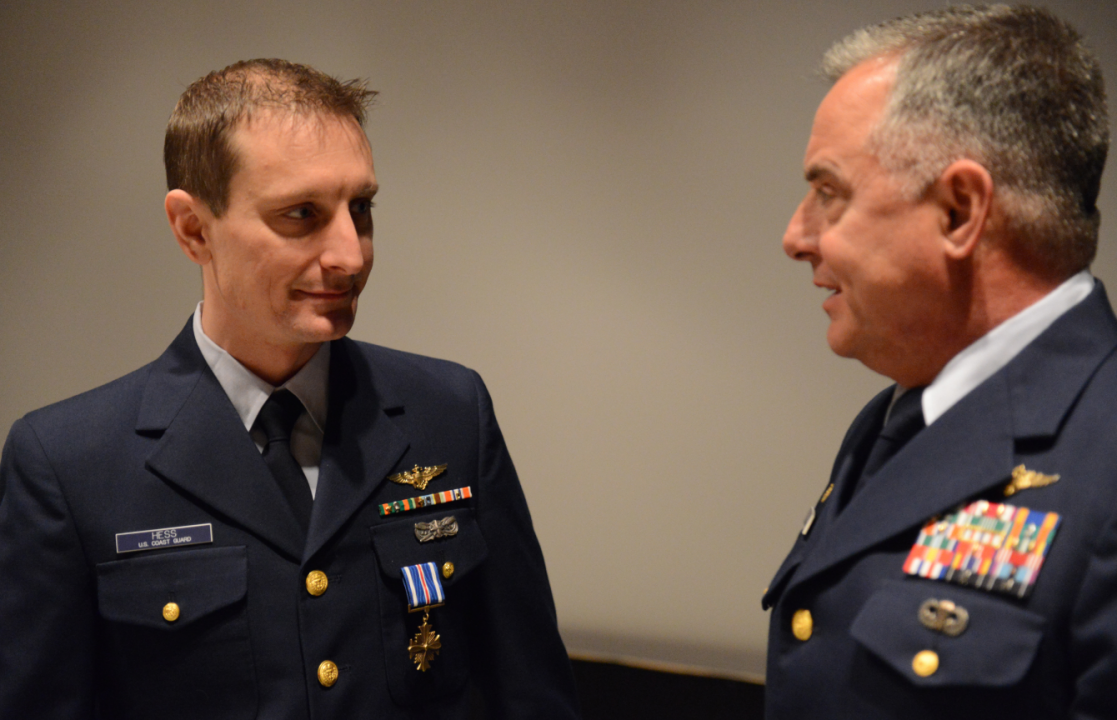
U.S. Coast Guard
The Coast Guard Cross is awarded for extraordinary heroism in combat. The second-highest honor a member of the Coast Guard can receive beyond only the Medal of Honor, it is awarded to members who serve in any capacity with the Coast Guard when the Coast Guard is not operating under Navy command.
Air Force Cross
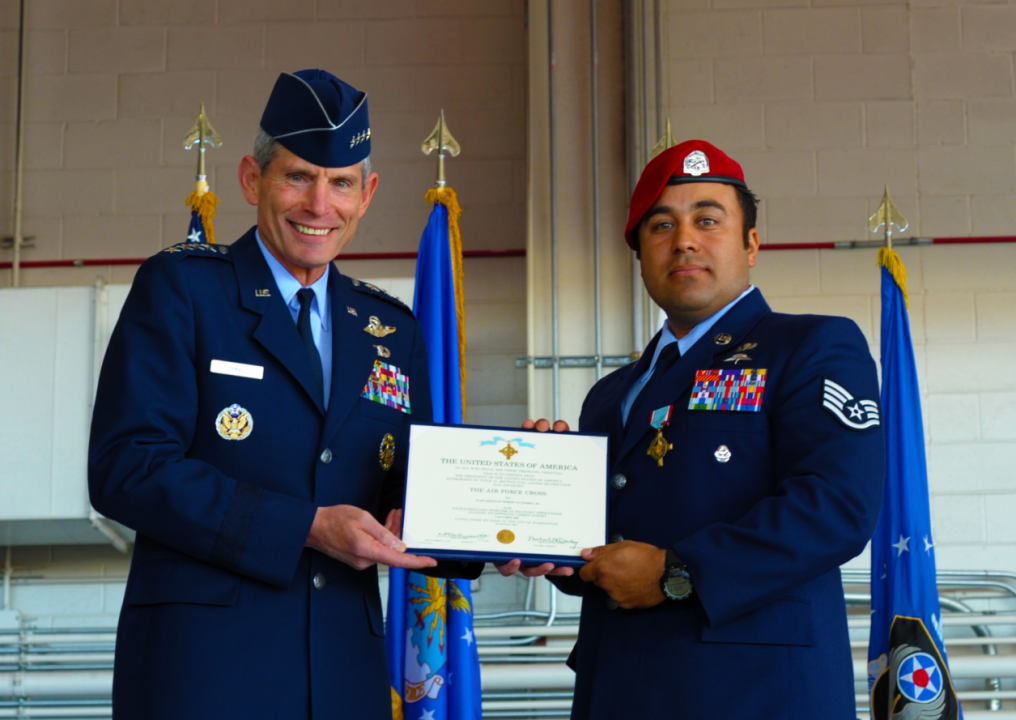
U.S. Air Force
The Air Force Cross is awarded to members of the Air Force who display gallantry in combat who don’t quite merit the Medal of Honor but that supersede the requirements of all lesser medals. It is the second-highest honor a member of the Air Force can receive.
Silver Star
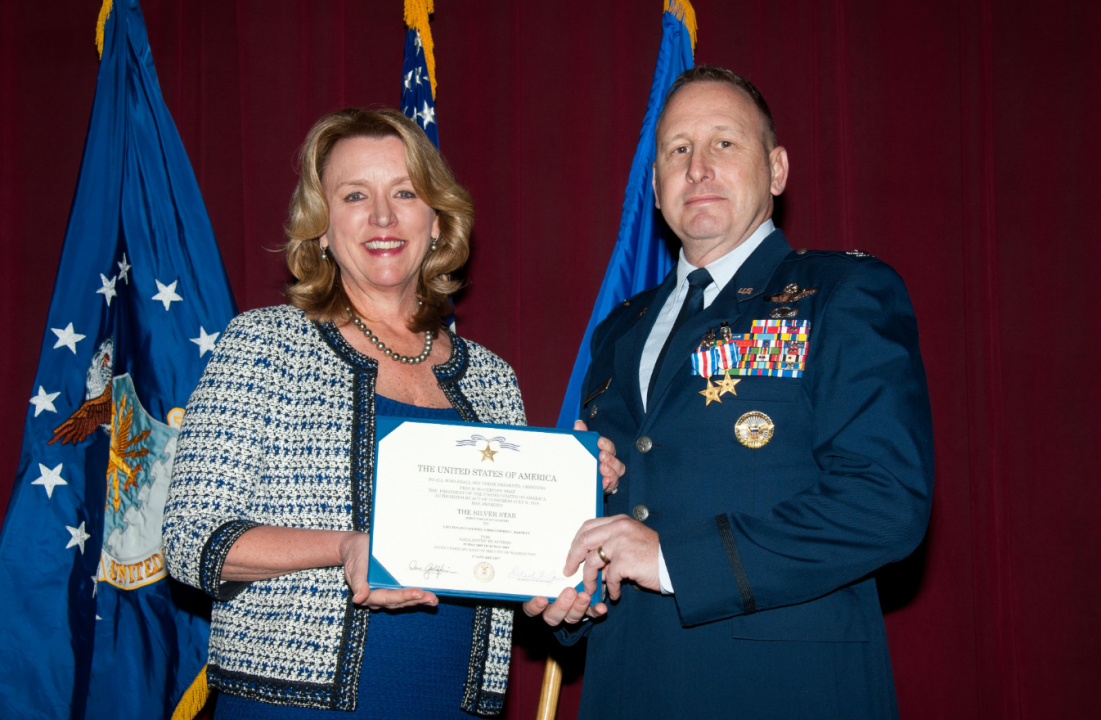
U.S. Air Force
The Silver Star is the third-highest decoration that can be awarded to a member of the Armed Forces. It recognizes gallantry in action that rises above the requirements for all medals except for the Medal of Honor and a branch-specific Service Cross.
Defense Distinguished Service Medal
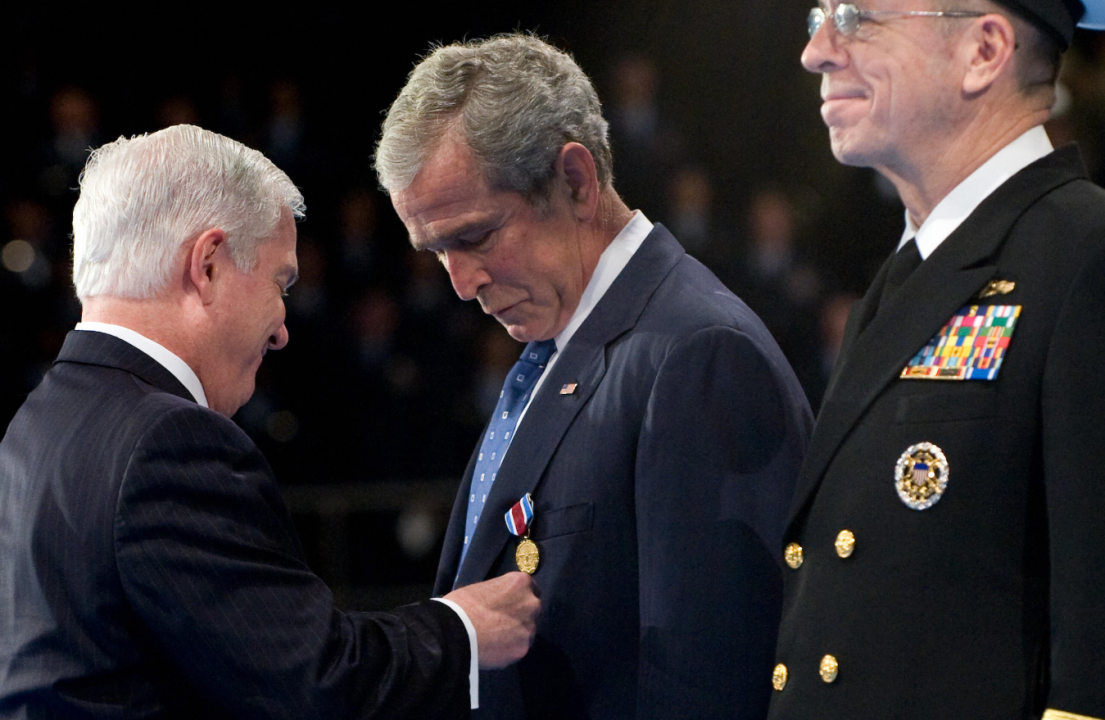
SAUL LOEB/AFP // Getty
Established in 1970 by President Richard Nixon, the Defense Distinguished Service Medal is awarded by the Secretary of Defense. It recognizes exceptionally meritorious service in a position of great responsibility while assigned to a joint services activity. It is the military’s highest joint service decoration and the highest non-combat award.
Homeland Security Distinguished Service Medal
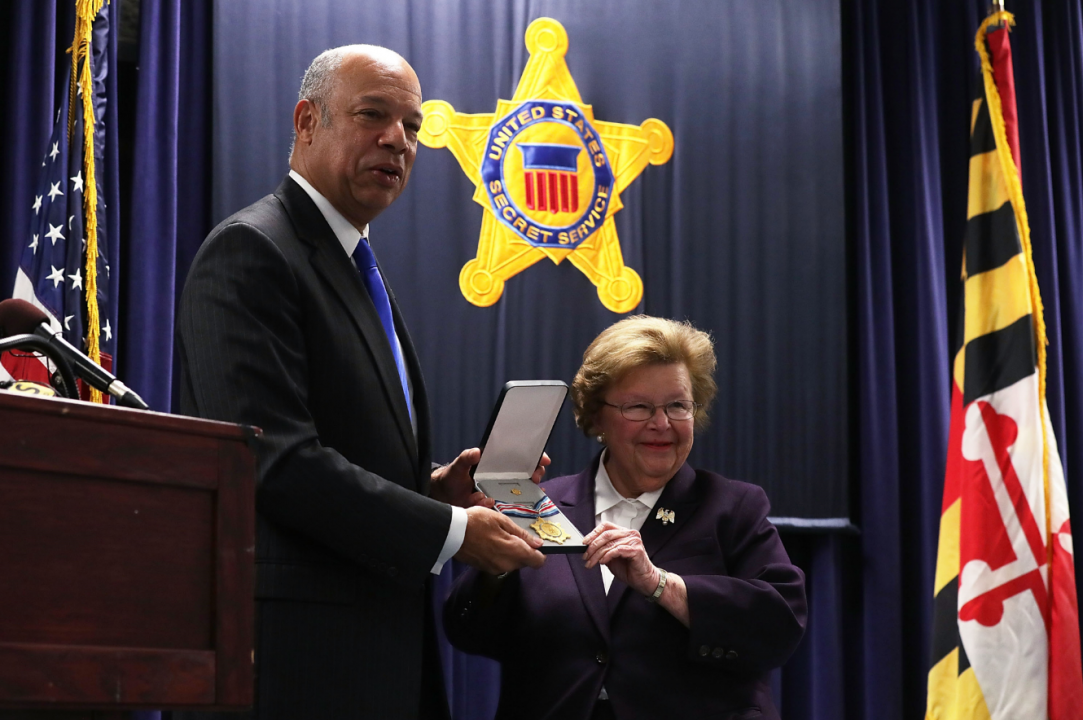
Alex Wong // Getty
Like all Distinguished Service medals, the Homeland Security Distinguished Service Medal is one of the highest honors in the U.S. military. Established by an executive order of President George W. Bush in 2003, retroactive to 2002, it can be awarded to any member of the Armed Forces.
Distinguished Service Medal
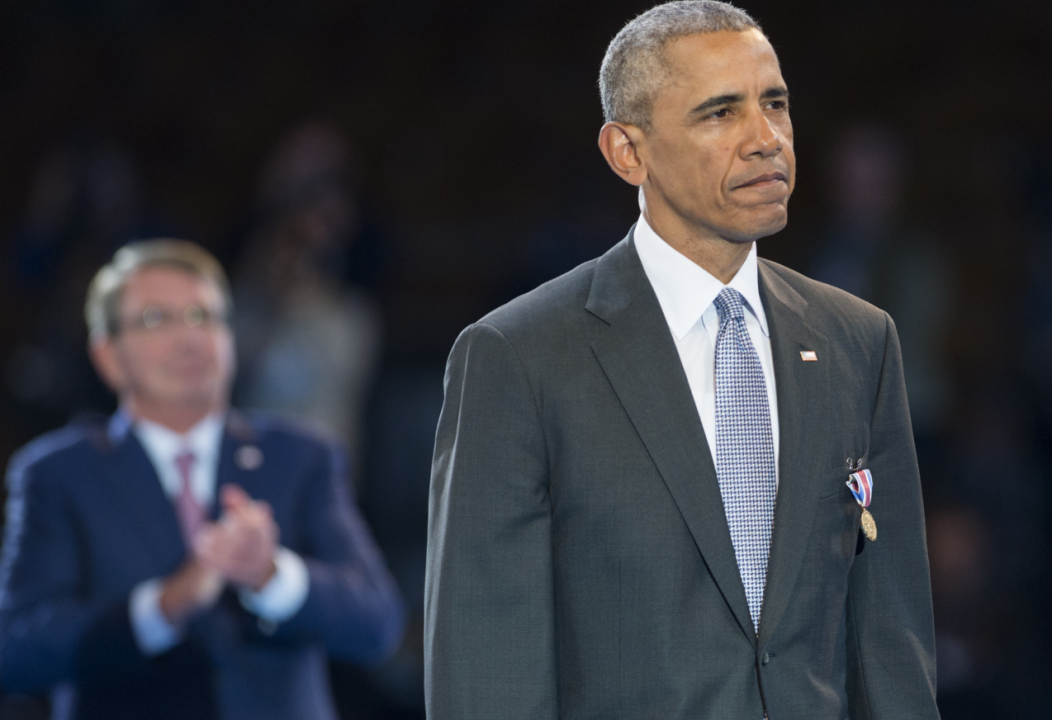
SAUL LOEB/AFP // Getty
First established in 1918, the Distinguished Service Medal is awarded to members of the Army for both combat and non-combat valor. The fourth-highest honor in the Army, it recognizes exceptionally meritorious service in a position of great responsibility.
Navy and Marine Distinguished Service Medal
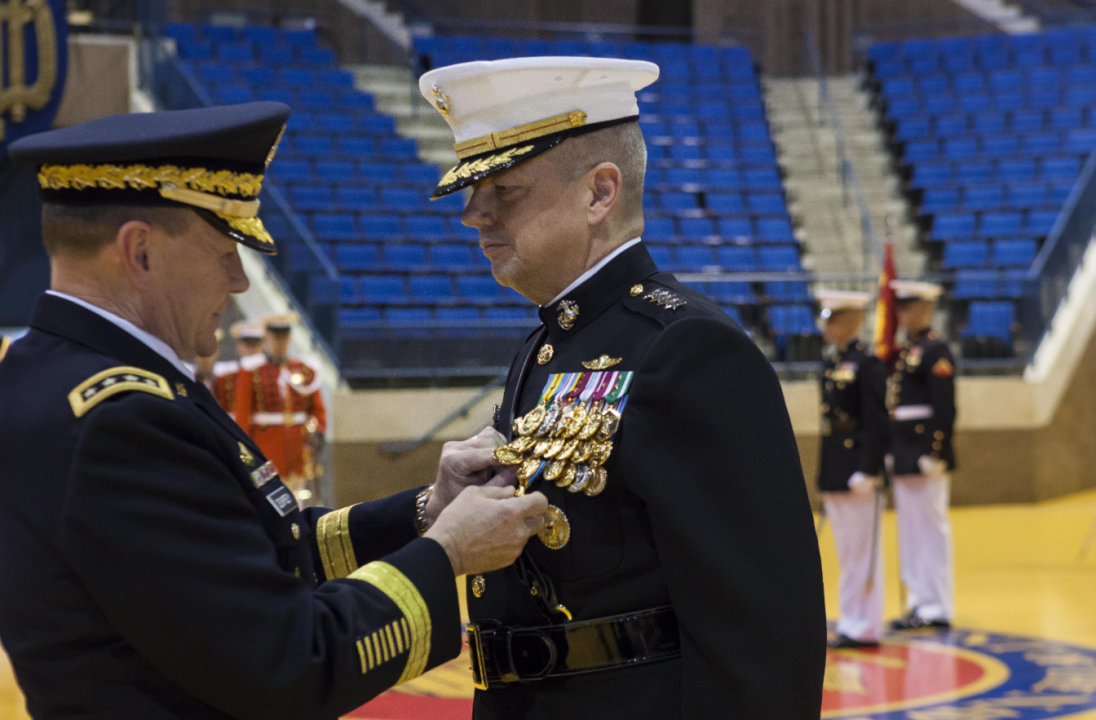
U.S. Marine Corps
As with the other branches, the Navy and Marine Distinguished Service Medal is the fourth-highest honor for the Navy and Marine Corps. Established in 1919, it recognizes exceptionally meritorious service in both combat and non-combat service while in a position of great responsibility.
Air Force Distinguished Service Medal
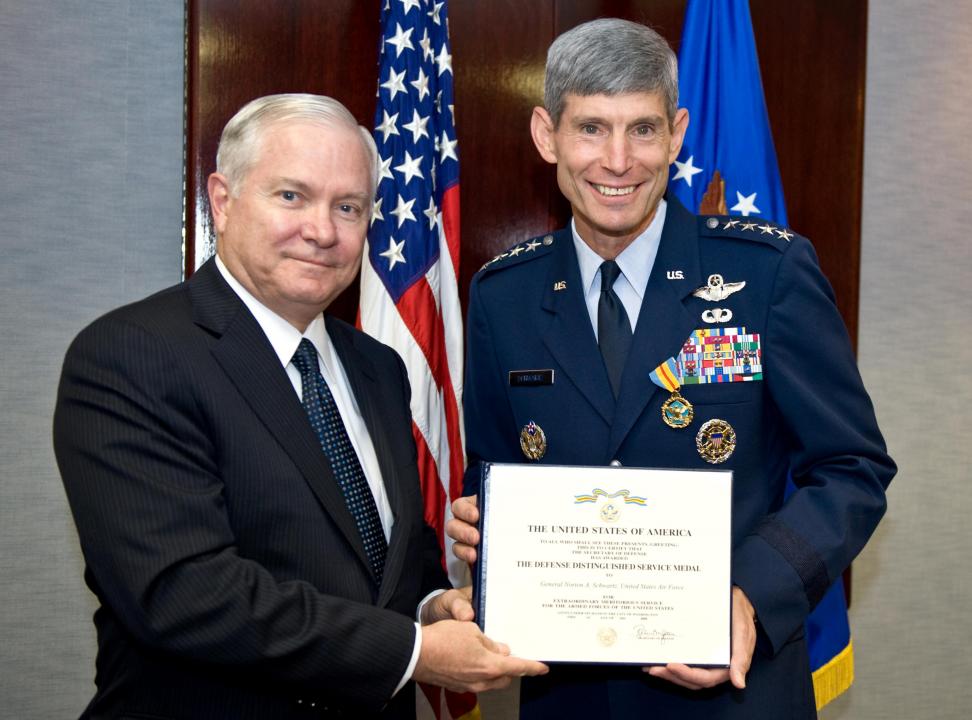
U.S. Department of Defense // Wikimedia Commons
The Air Force, too, bestows its own Distinguished Service Medal as the branch’s fourth-highest honor. Like the other Distinguished Service Medals, the Air Force’s recognition of exceptionally meritorious service in a position of great responsibility features its own unique design.
Coast Guard Distinguished Service Medal
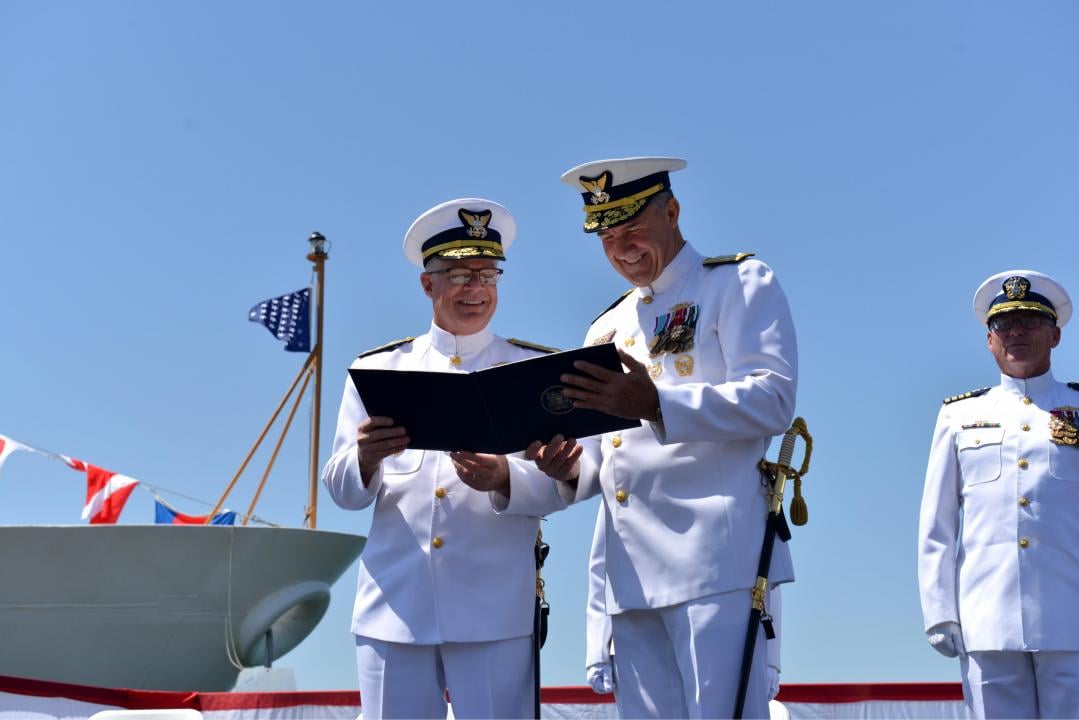
Petty Officer 1st Class Matthew S. Masaschi, U.S. Coast Guard // Wikimedia Commons
The final Distinguished Service Medal is that issued by the Coast Guard, which first authorized the medal in 1949. It, too, recognizes exceptionally meritorious service in a position of great responsibility and is the branch’s fourth-highest honor.
Defense Superior Service Medal
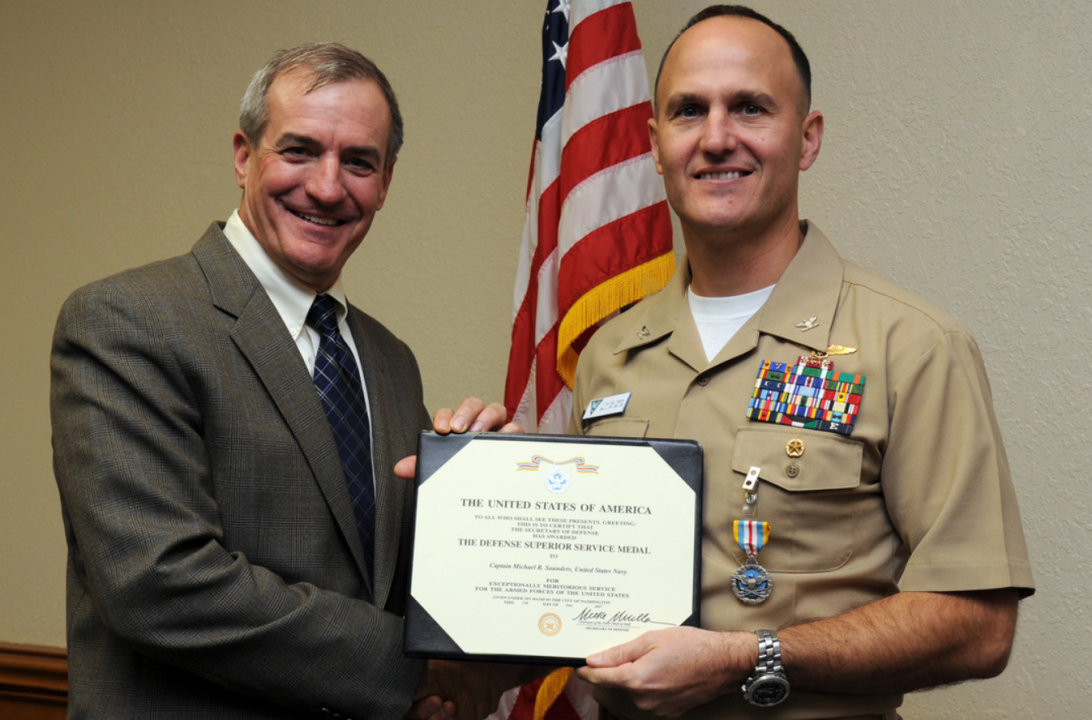
U.S. Air Force
Established through an executive order by Gerald R. Ford in 1976, the Defense Superior Service Medal is awarded by the Secretary of Defense. It recognizes superior meritorious service of officers holding positions of significant responsibility.
Legion of Merit
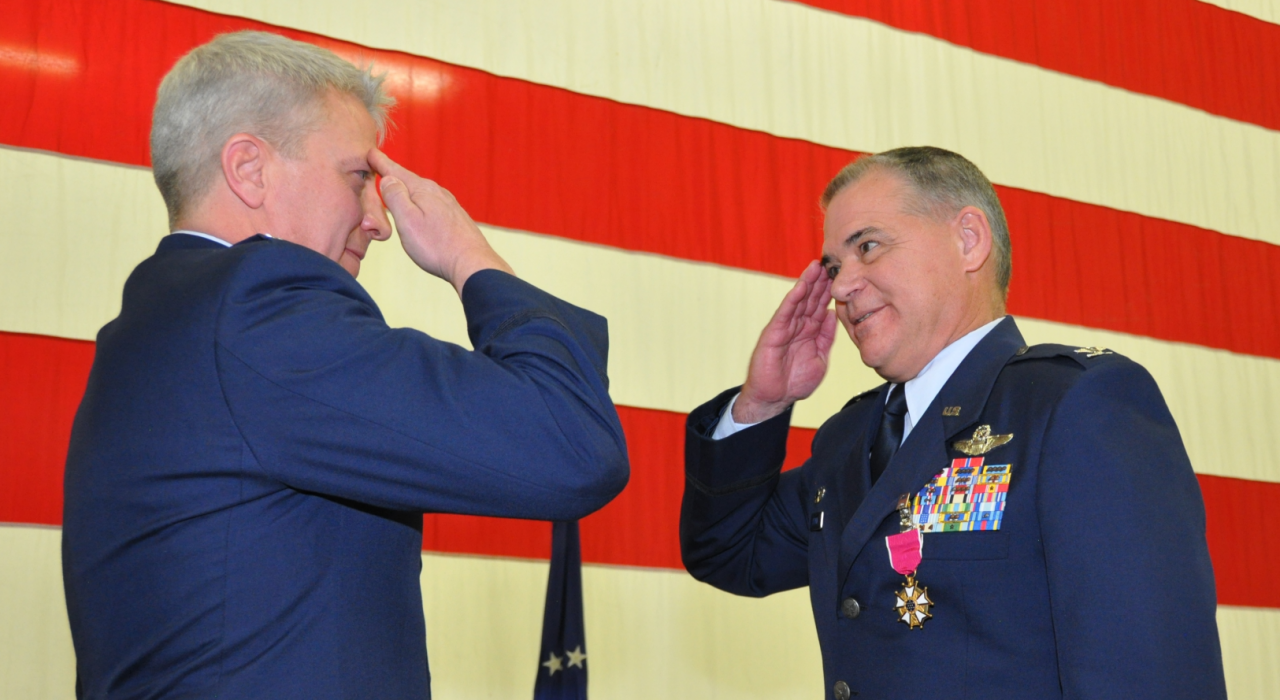
U.S. Air Force
One of the most prestigious awards in the U.S. military, the Legion of Merit ranks just below the Silver Star and ahead of the Distinguished Flying Cross. It stands alone with the Medal of Honor as one of just two decorations that can be worn around the neck.
Distinguished Flying Cross
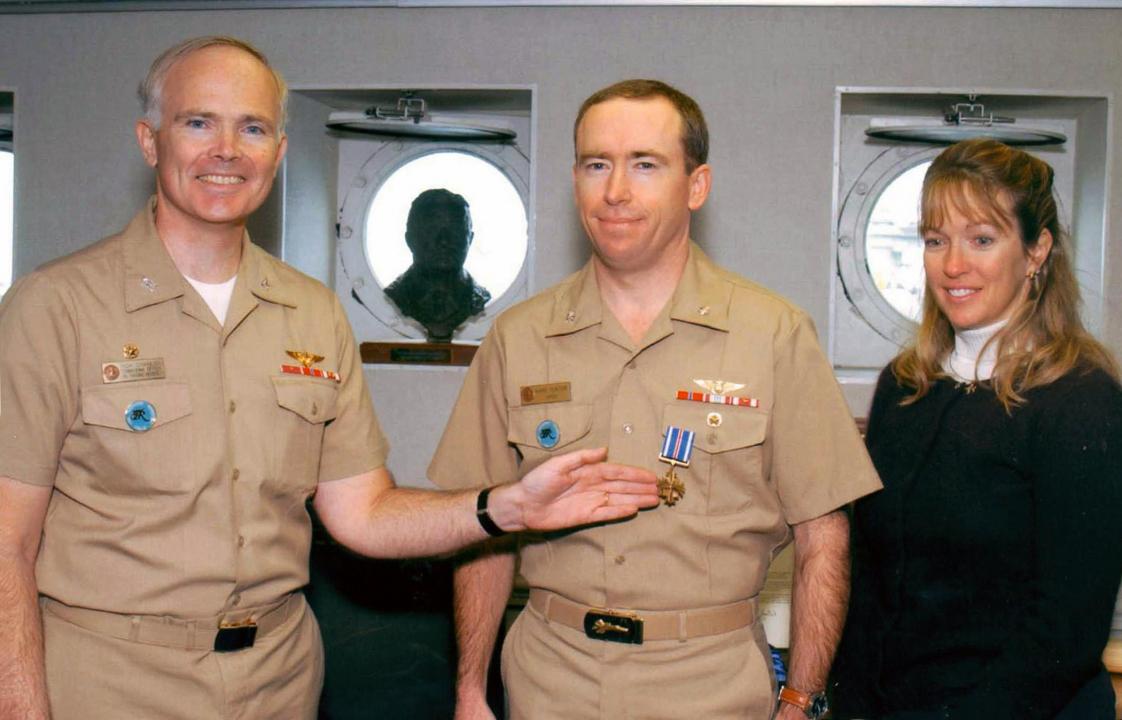
U.S. Navy // Wikimedia Commons
First issued to Capt. Charles Lindbergh in 1927, the Distinguished Flying Cross is the oldest aviation award in the U.S. military. It recognizes extraordinary achievement or heroism during aerial flight.
Soldier's Medal
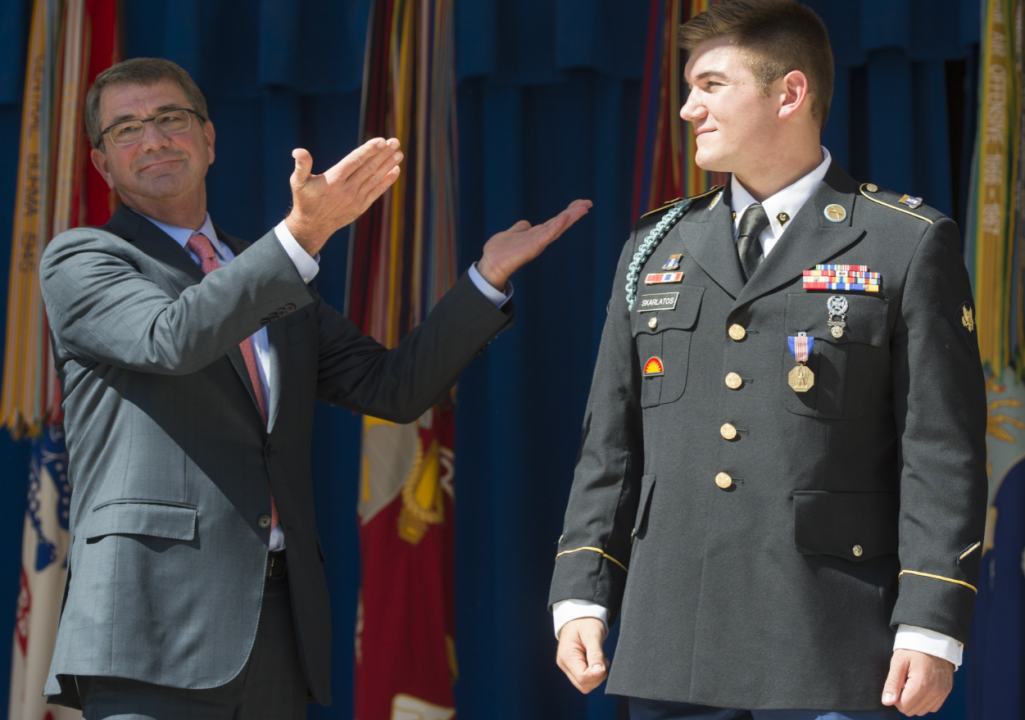
SAUL LOEB/AFP // Getty
First authorized in 1926, the Soldier’s Medal is an Army honor awarded for non-combat heroism. One of Army’s most distinguished honors, it recognizes heroism through the voluntary risk of life and can be earned for actions taken on behalf of either civilians or fellow soldiers.
Navy and Marine Corps Medal
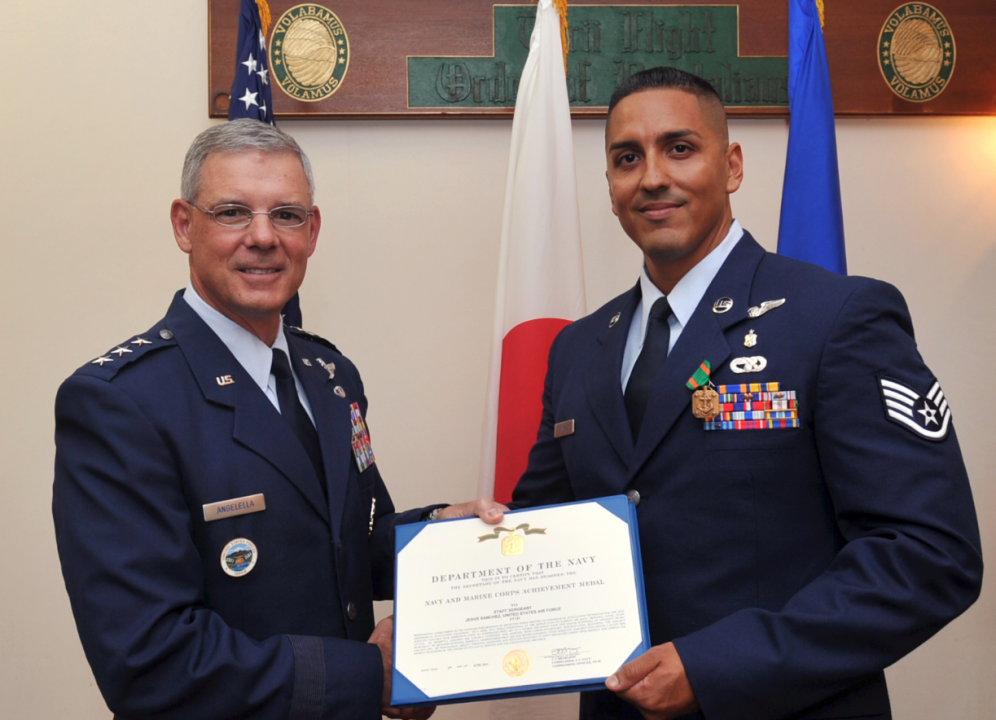
U.S. Air Force
First authorized in 1942 during World War II, the Navy and Marine Corps Medal is, as the Soldier’s Medal is to the Army, the highest non-combat honor for both branches. It recognizes acts of extraordinary heroism, including for reserves, in situations not involving direct armed conflict.
Airman's Medal
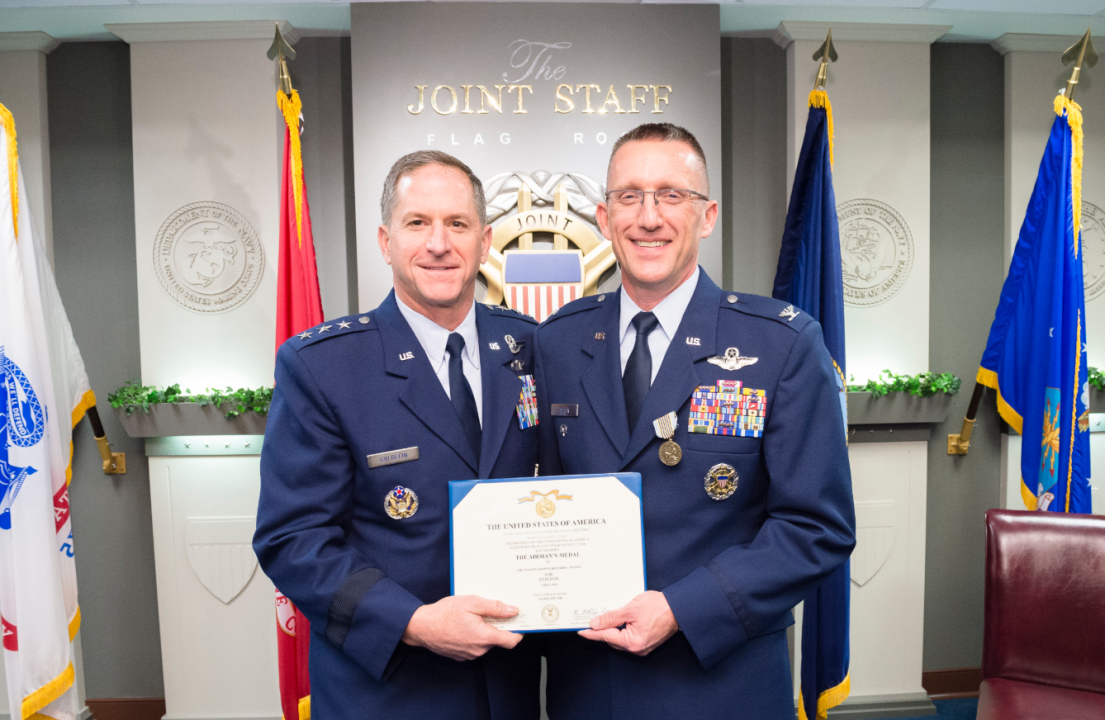
U.S. Air Force
The highest non-combat honor bestowed by the Air Force is called the Airman’s Medal. Established in 1960, it awards heroic actions not directly related to combat.
Coast Guard Medal
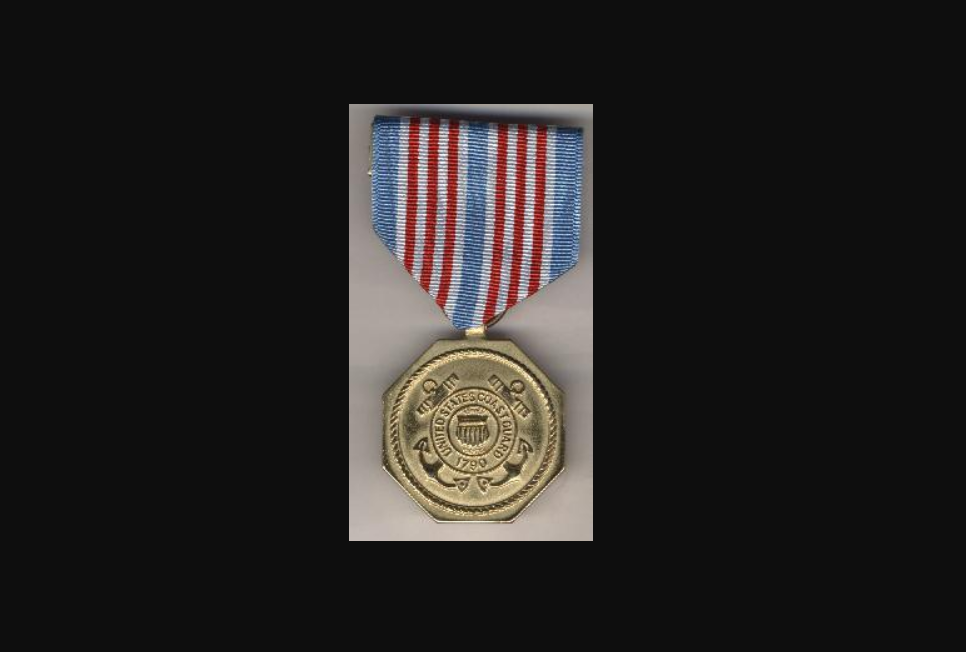
Public Domain // Wikimedia Commons
First authorized in 1949, the Coast Guard Medal was not issued until 1958. It recognizes heroism in non-combat situations and requires a voluntary act of extraordinary courage in the face of grave danger. If issued for a life-saving act, the act must have been performed when the loss of the rescuer’s life was likely.
Purple Heart

Joyce N. Bogosian/The White House // Getty
The Purple Heart is awarded to any service member in any branch who is injured or killed by an enemy attack, either as the result of military operations while serving in a peacekeeping force or a terrorist attack. It replaced the Badge of Military Merit, which was issued by George Washington in 1782, and is the oldest military award still issued today.
Bronze Star Medal
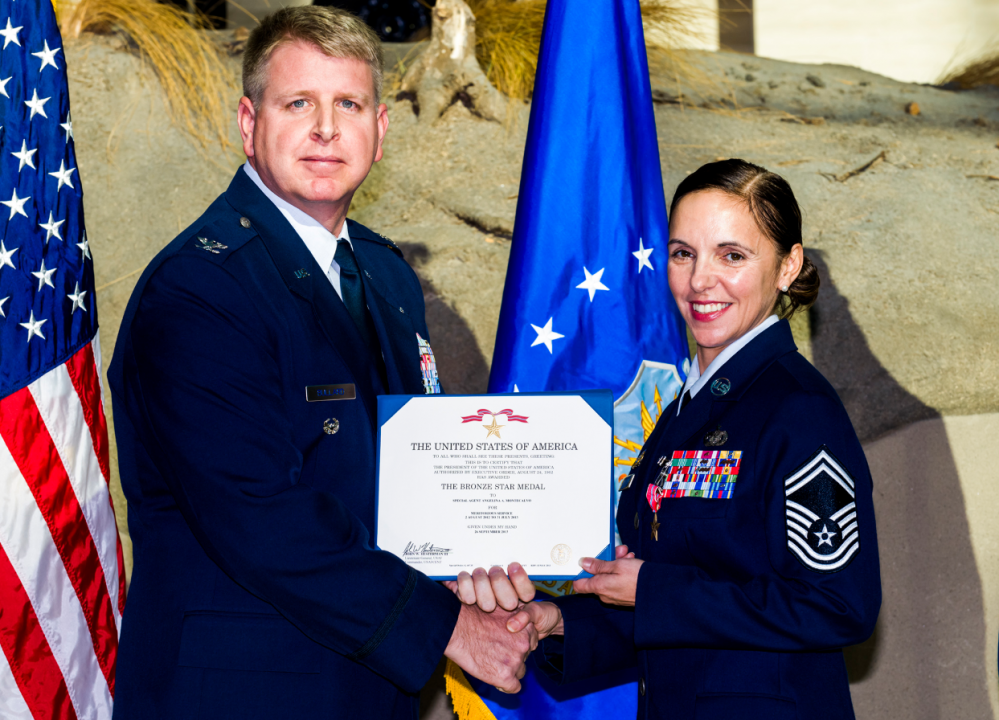
U.S. Air Force
Known commonly as the Bronze Star, the Bronze Star Medal may be issued to all members of the Armed Forces. It recognizes heroic or meritorious service or achievement in combat not involving aerial flight.
Meritorious Service Medal
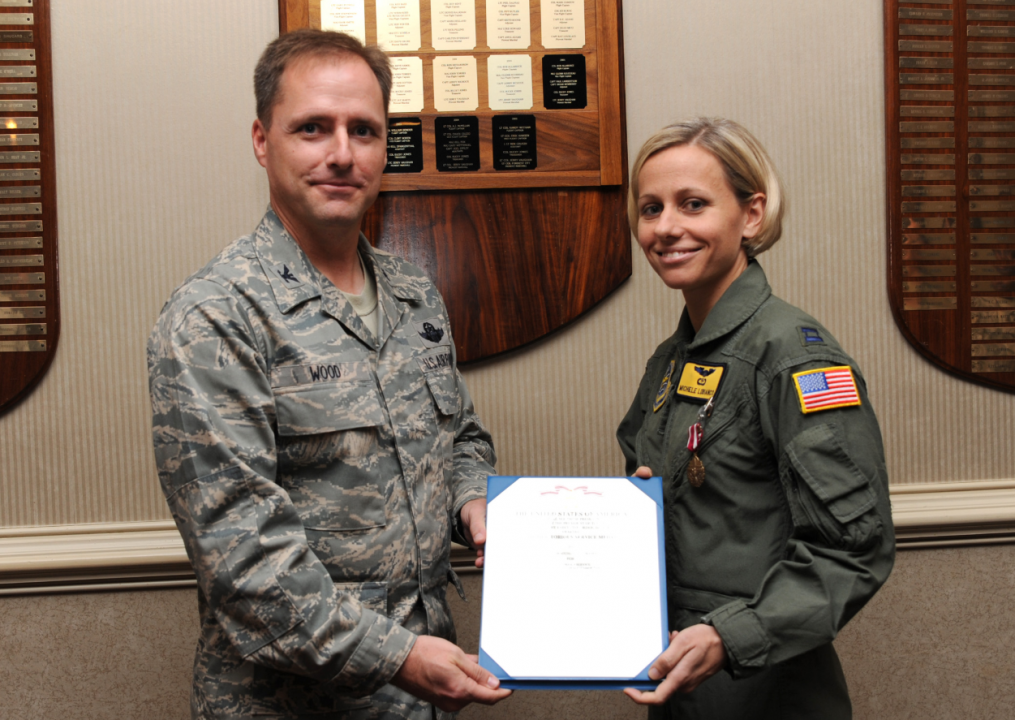
U.S. Air Force
The Meritorious Service Medal is awarded for outstanding acts of service or achievement similar to those, but to a lesser degree, recognized by the Legion of Merit. Before its introduction in 1969, the medal’s requirements were covered by the Bronze Star.
Air Medal
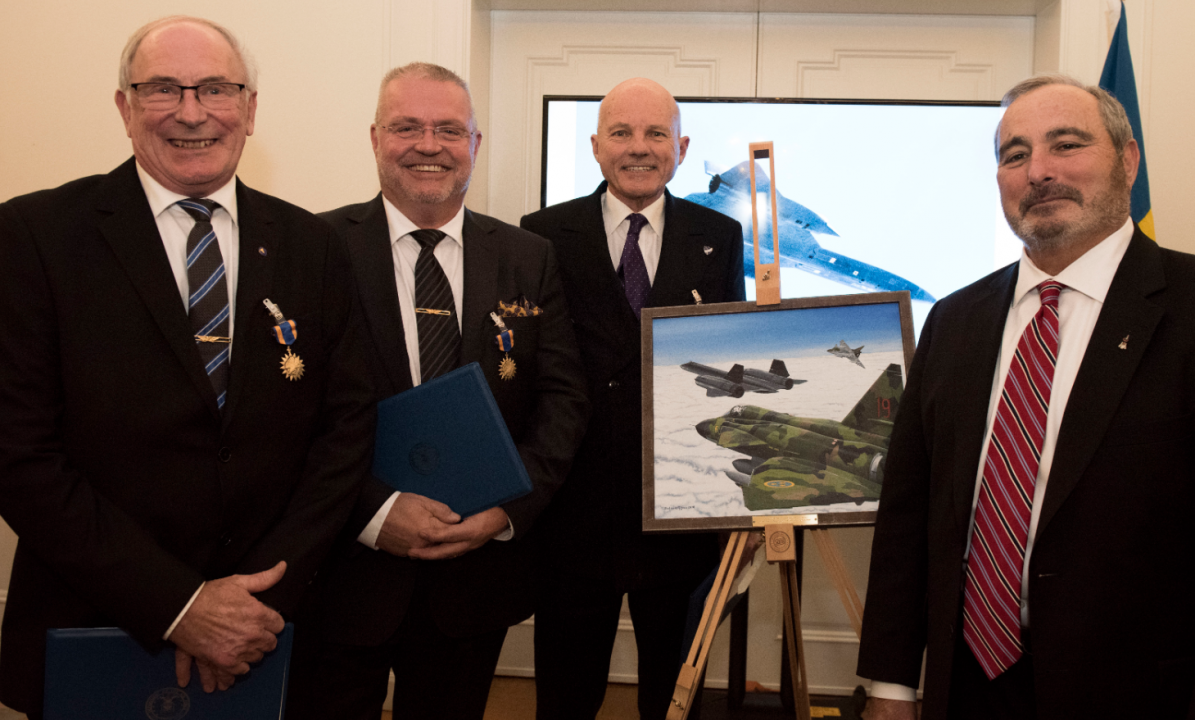
U.S. Air Force
First established in 1942, the Air Medal can be awarded to members of all branches of service. It recognizes meritorious service during aerial flight or for an act of heroism against an armed enemy.
Aerial Achievement Medal
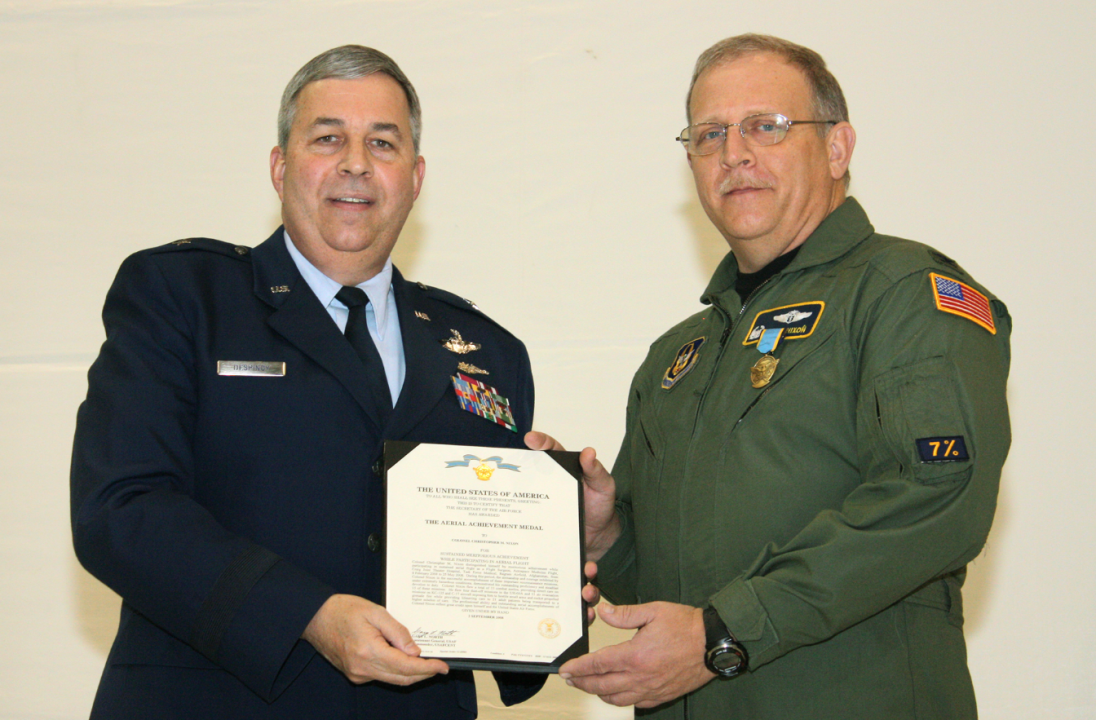
U.S. Air Force
First established in 1988, the Aerial Achievement Medal is issued by the Air Force. It recognizes sustained meritorious achievement in aerial flight.
Navy Combat Action Ribbon
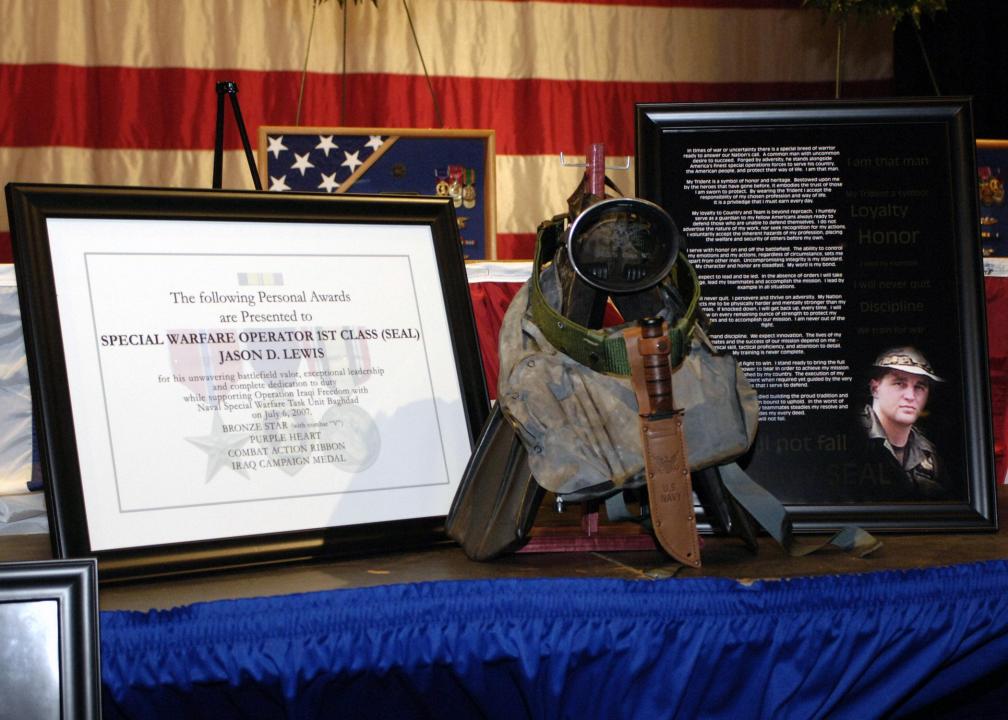
U.S. Navy // Wikimedia Commons
Known colloquially as the CAR, the Combat Action Ribbon stirred controversy in 2015 when a service member was named the 2014 Military Times’ Marine of the Year without having earned a CAR, which is awarded to members of the Sea Services—Navy, Marines, and Coast Guard—who have actively participated in ground or surface combat.
Coast Guard Combat Action Ribbon
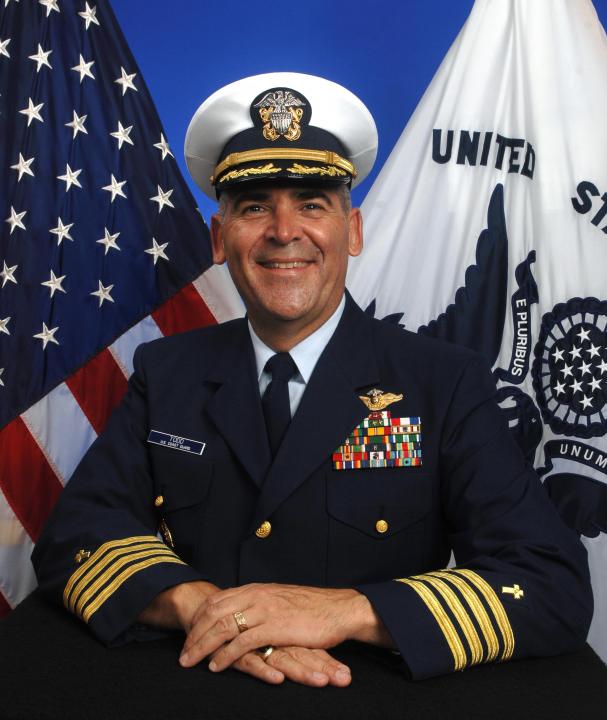
USCG // Wikimedia Commons
Members of the Coast Guard are eligible for the Navy Combat Action Ribbon (CAR), but only for service during a time when the Coast Guard was under the command of the Navy. The Coast Guard CAR applies to service during times when the Coast Guard is under the command of the Navy and when it is not.
Air Force Combat Action Medal
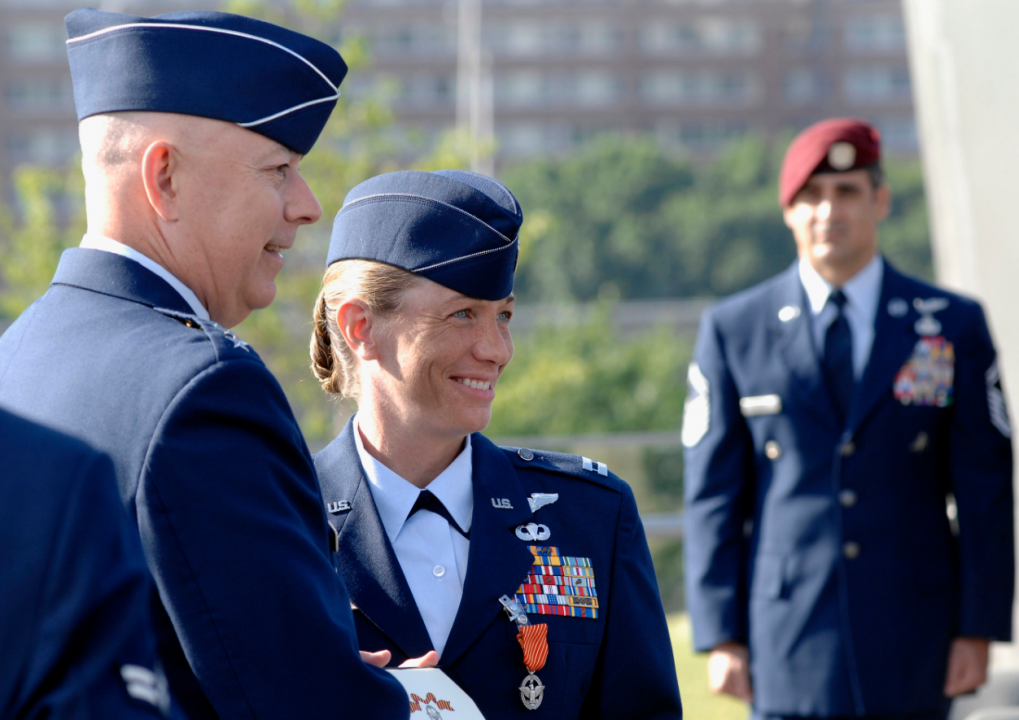
U.S. Air Force
One of the newer military medals, the Air Force Combat Action Medal was first authorized in 2007. It is issued to members of the Air Force who risk their lives in direct air or ground combat during an engagement with the enemy in a hostile combat zone.
Prisoner of War Medal
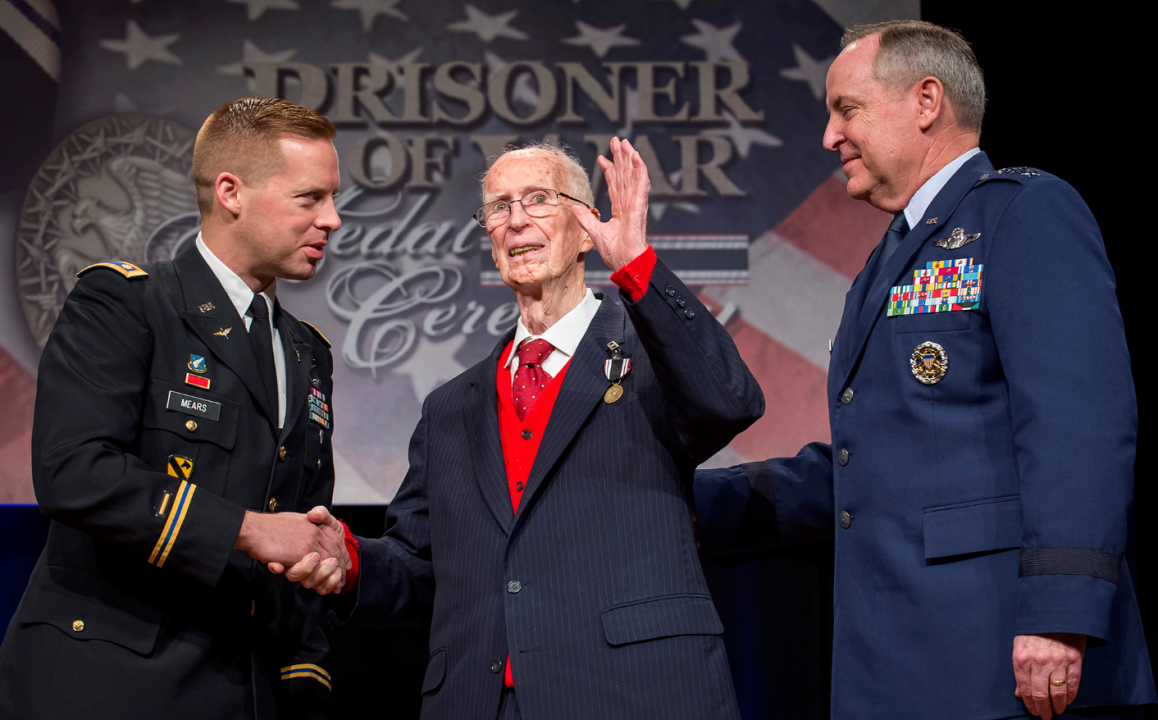
U.S. Air Force
Although the Prisoner of War Medal was first authorized by President Ronald Reagan in 1985, it can be retroactively awarded to any service member taken prisoner after April 5, 1917 (the United States entered World War I on April 6). Prisoners must have acted honorably during their captivity to be considered for the medal, which can be presented posthumously to the next of kin.
Joint Service Commendation Medal
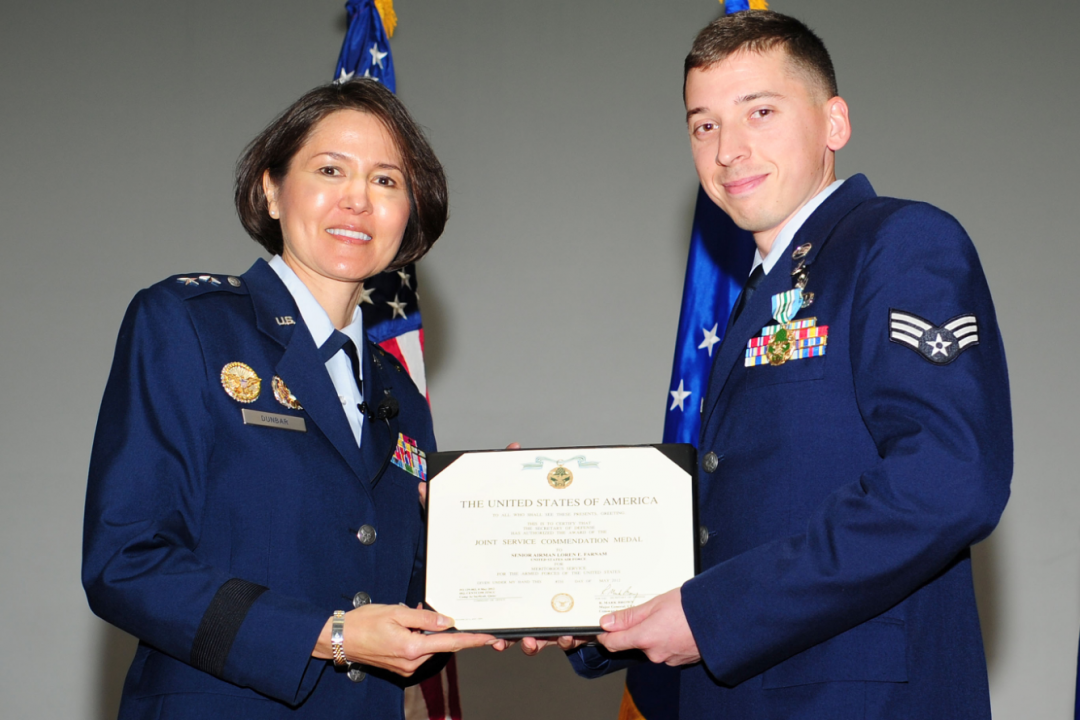
U.S. Air Force
Awarded by the Joint Chiefs of Staff, the Secretary of Defense, or other Defense Department agencies, the Joint Service Commendation Medal was first established in 1963. It is awarded to members of any branch of service who display meritorious service or achievement as part of a joint operation.
Army Commendation Medal
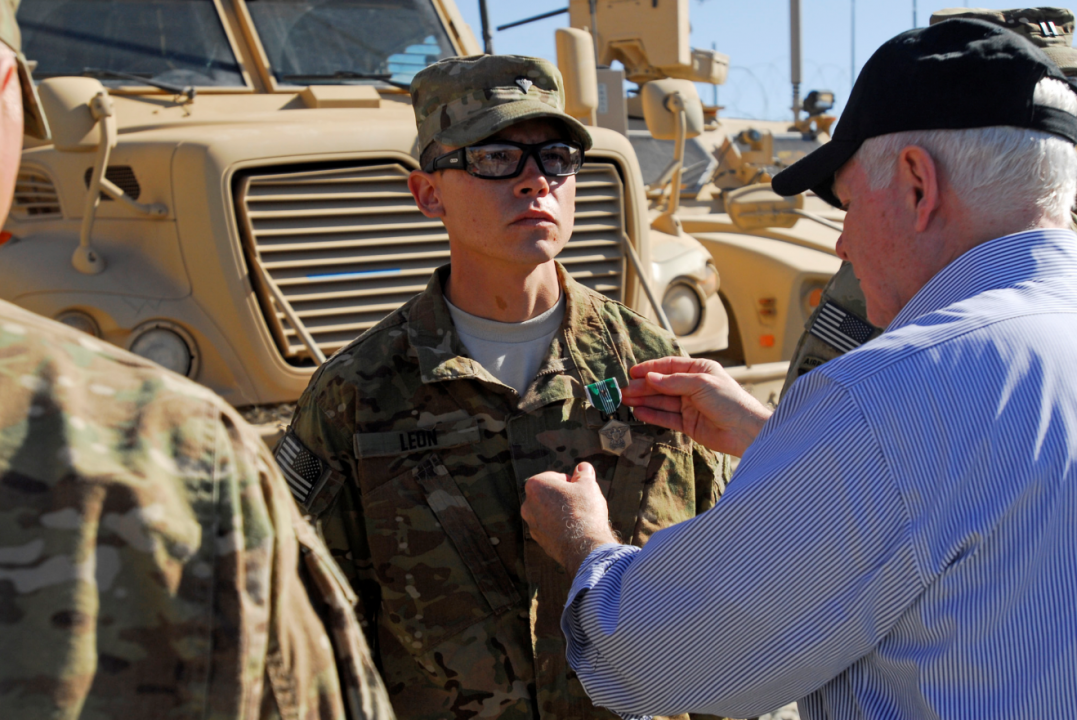
Haraz N. Ghanbar/ISAF Regional Command // Getty
The Army awards its Commendation Medal to its own soldiers or members of other branches serving with the Army. First authorized in 1945, it recognizes service members who display meritorious service, accomplish an outstanding achievement, or distinguish themselves through acts of heroism.
Navy and Marine Corps Commendation Medal
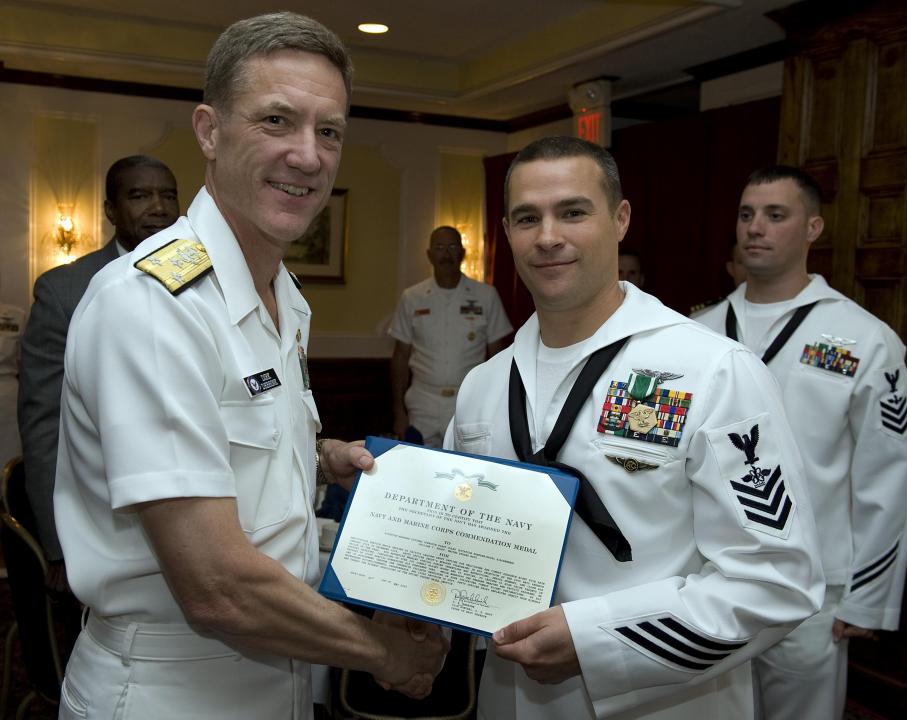
U.S. Navy // Wikimedia Commons
Before the Navy and Marine Corps Commendation Medal was authorized in 1944, it was called the Commendation Ribbon. The medal recognizes heroism and meritorious service or achievement of any member of either branch, as well as members of other branches who are serving with the Marines or Navy.
Air Force Commendation Medal
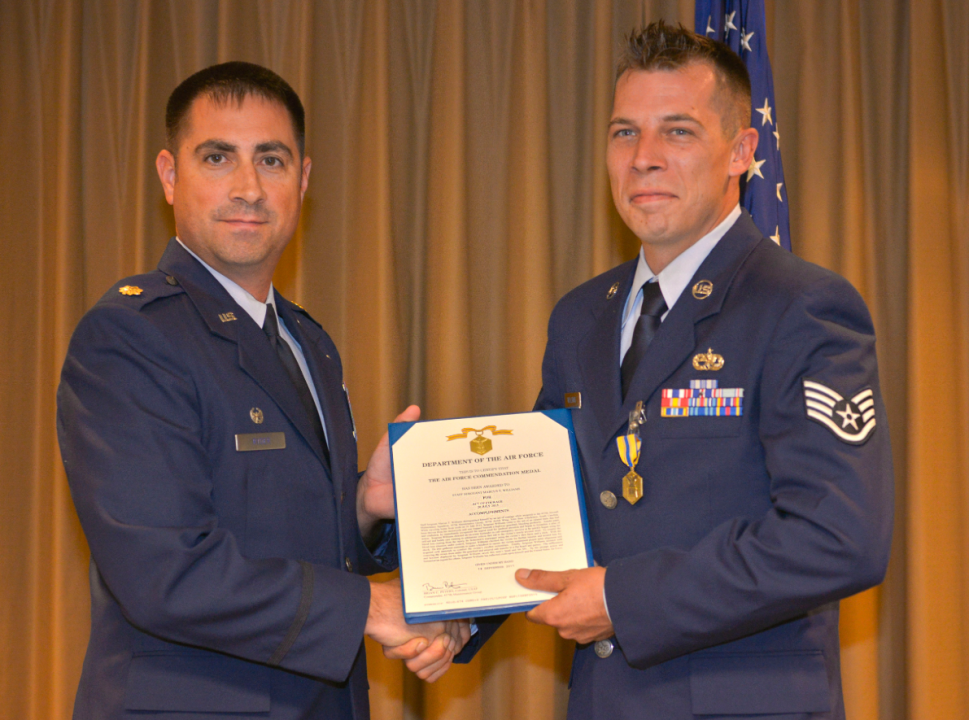
U.S. Air Force
Like the other branches, the Air Force issues a Commendation Medal to its own members or to members of any branch serving with the Air Force whose heroism or meritorious service or achievement earns the distinction. The medal was first authorized in 1958.
Coast Guard Commendation Medal
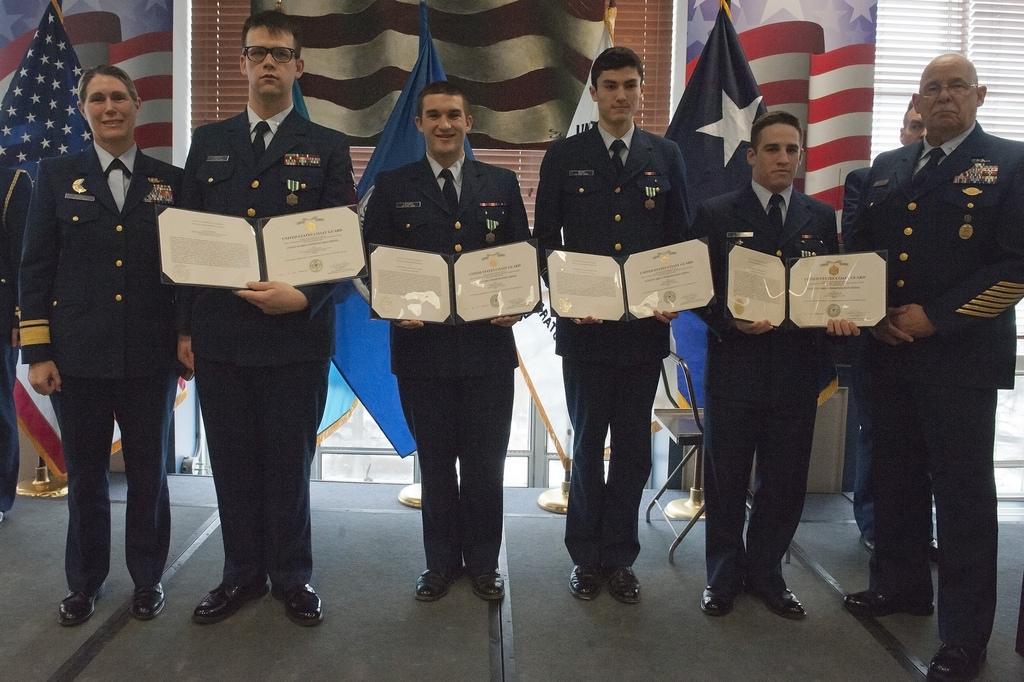
U.S. Coast Guard Academy // Flickr
Originally authorized as a ribbon bar in 1947, the Coast Guard Commendation Medal was redesignated to its current status in 1959. It is awarded for meritorious service, outstanding achievement, or heroism.
Joint Service Achievement Medal
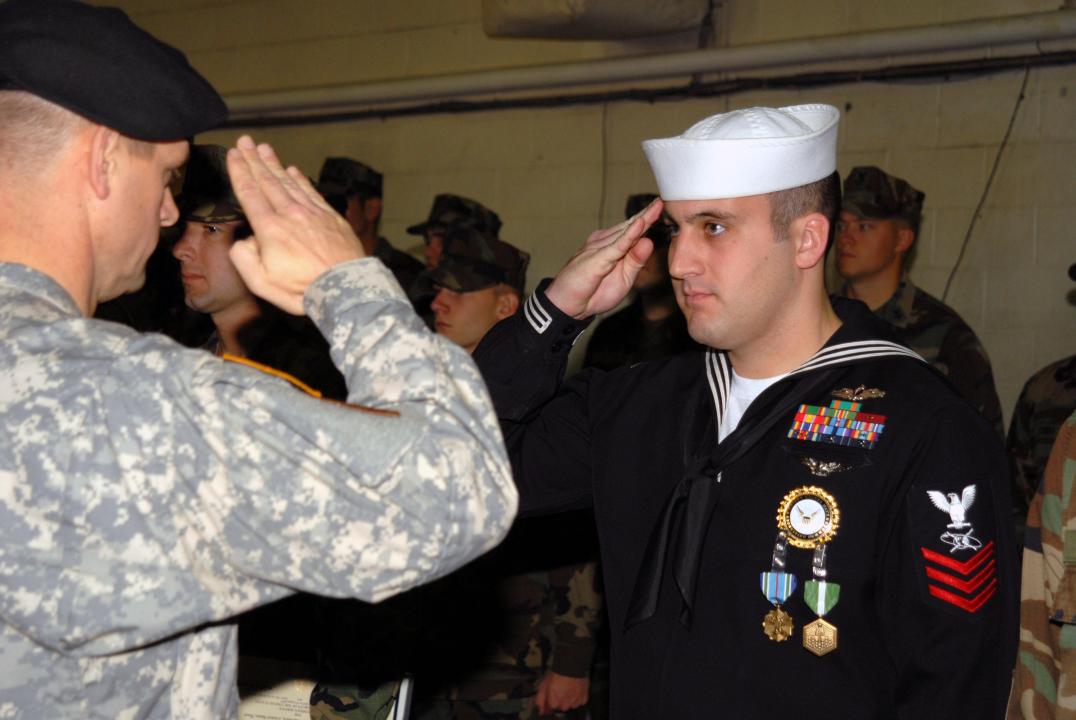
U.S. Navy // Wikimedia Commons
The Joint Service Achievement Medal, which can be issued to all branches, was established after each individual branch authorized its own Achievement Medal. It awards meritorious service or achievement as part of joint activities.
Army Achievement Medal
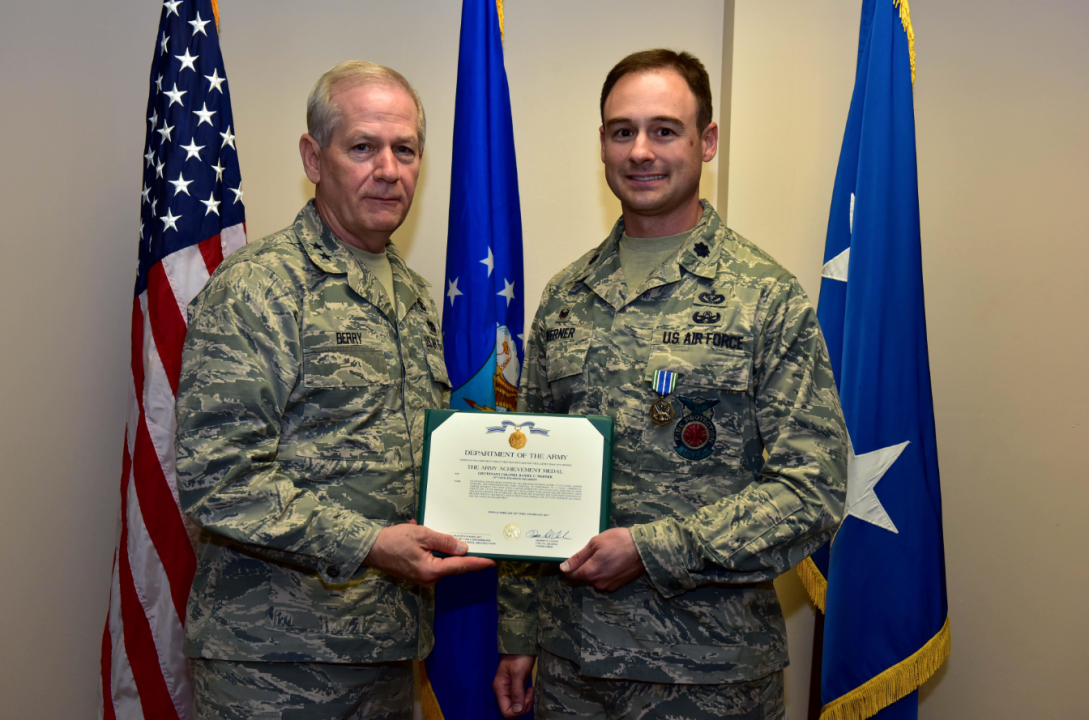
U.S. Air Force
The Army Achievement Medal can be awarded to members of the Armed Forces serving in an official Army capacity. First established in 1981, the medal is designated specifically for meritorious service or achievement in a non-combat setting. It is the only branch to award an achievement medal strictly for non-combat performance with no option of including a “V” for “valor.”
Navy and Marine Corps Achievement Medal
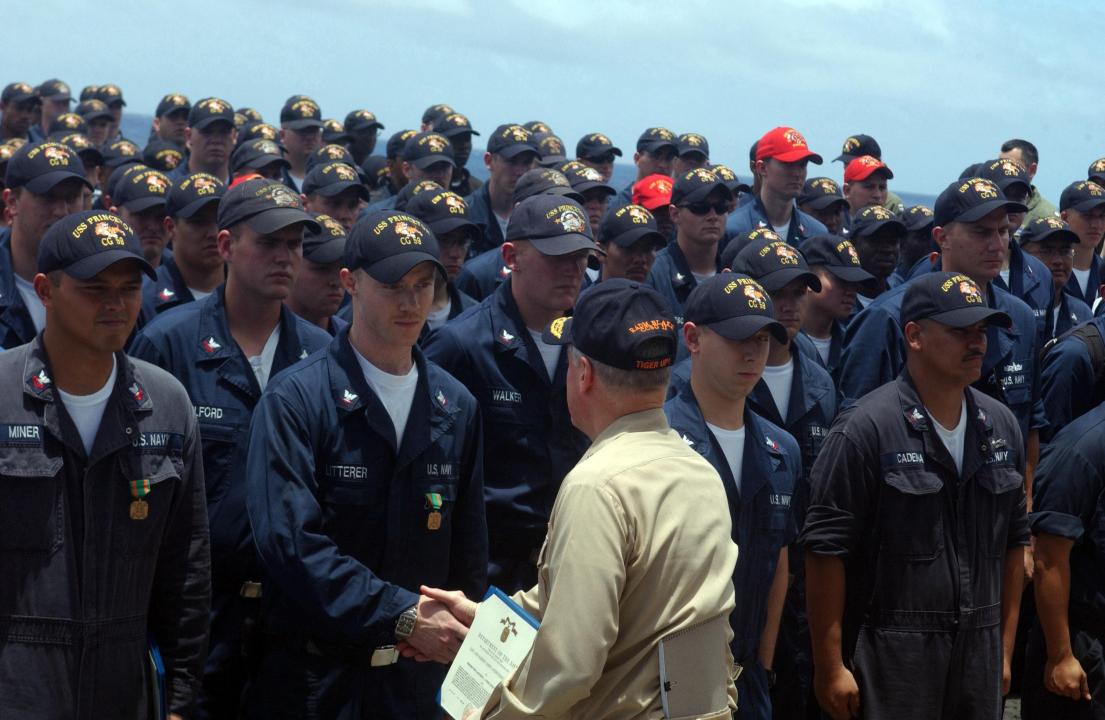
U.S. Navy // Wikimedia Commons
The Navy and Marine Corps Achievement Medal is reserved specifically for enlisted personnel and junior officers. Originally designated for outstanding non-combat leadership and professional achievements, the medal can now be bestowed for combat valor as well.
Air Force Achievement Medal
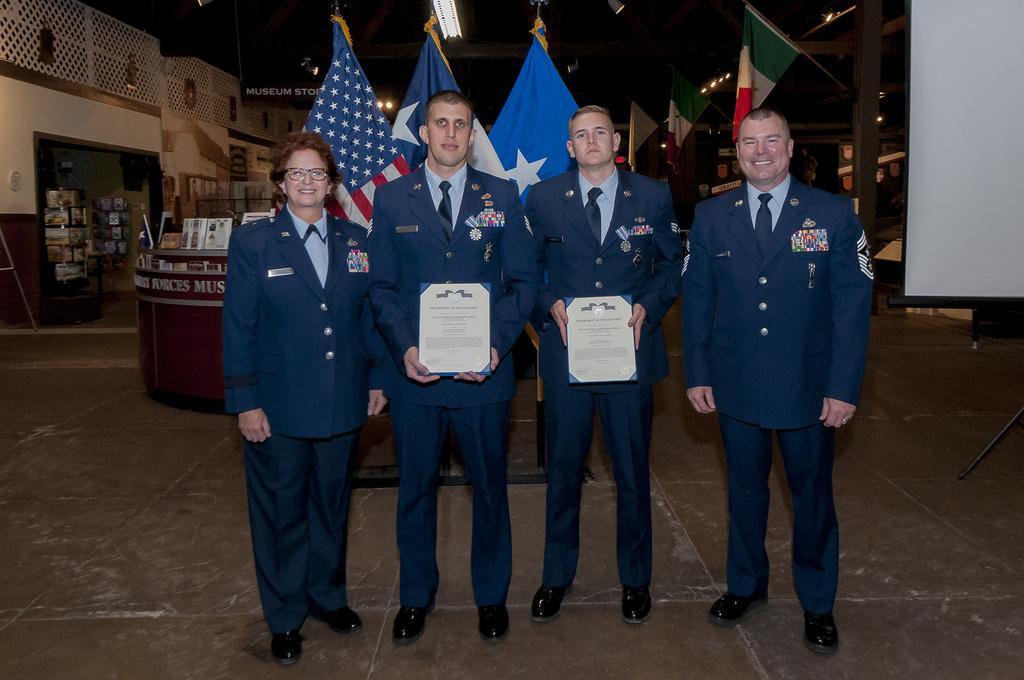
Texas Military Department // Flickr
The Air Force Achievement Medal recognizes acts of meritorious service, meritorious achievement, or valor after September 30, 1981. It’s akin to Achievement Medals issued by the other branches, although the Army does not have a valor designation.
Coast Guard Achievement Medal
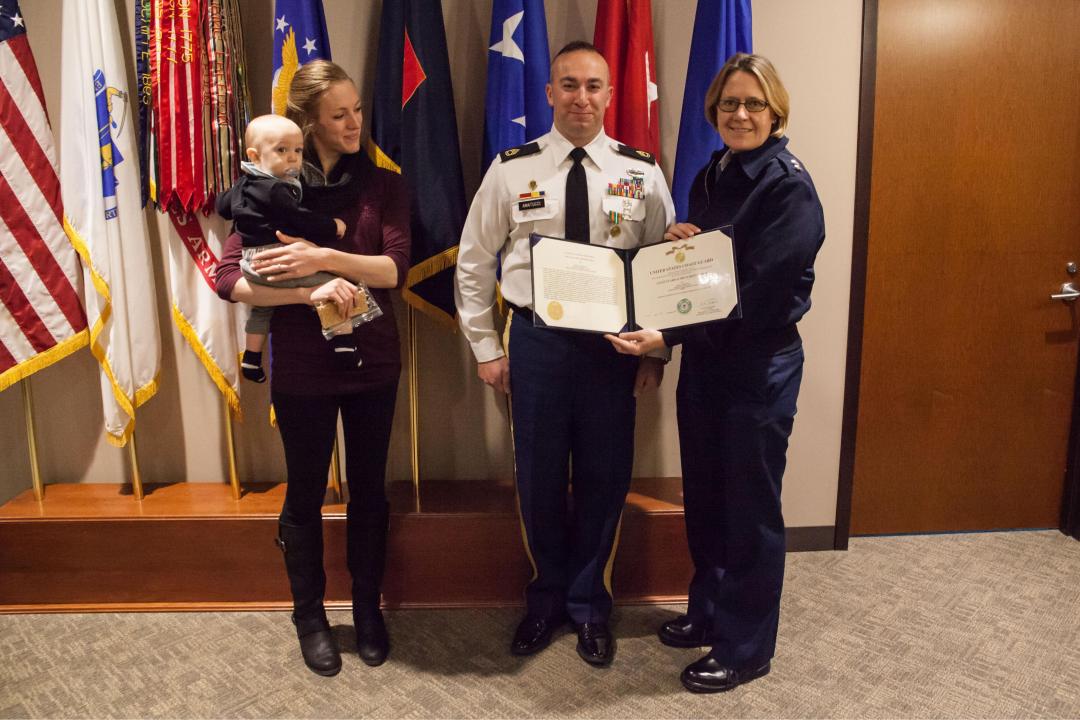
Massachusetts National Guard // Flickr
Originally called the Secretary of the Treasury Commendation of Achievement, the Coast Guard Achievement Medal was first authorized in 1967. Like the Achievement Medals of other branches, it ranks just below the Joint Service Achievement Medal.
Navy Expeditionary Medal
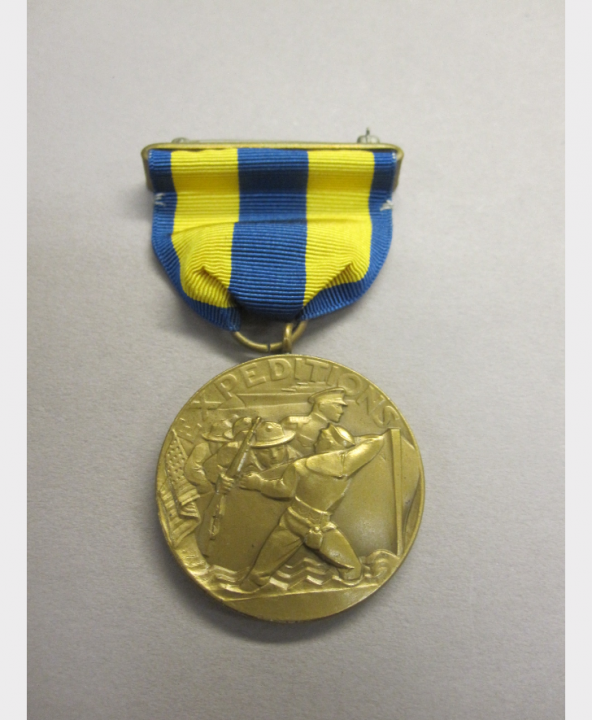
Naval History & Heritage Command // Flickr
The Navy Expeditionary Medal can be awarded not only to members of the Navy but also to members of the Coast Guard. It is awarded to both enlisted men and officers for opposed landing on foreign territory, provided no other campaign medal was awarded.
Marine Corps Expeditionary Medal
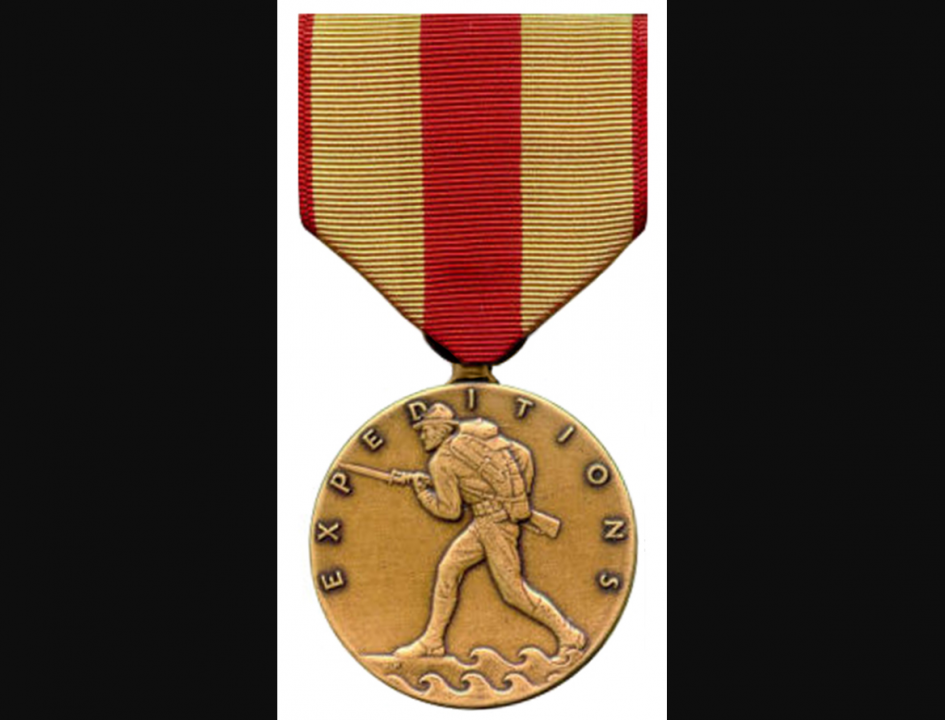
Public Domain // Wikimedia Commons
Like the comparable medal that honors Navy and Coast Guard personnel, the Marine Corps Expeditionary Medal recognizes Marines who land on opposed foreign territory. It can also be awarded for operations deserving special recognition as long as no other campaign medal was awarded.
Armed Forces Expeditionary Medal
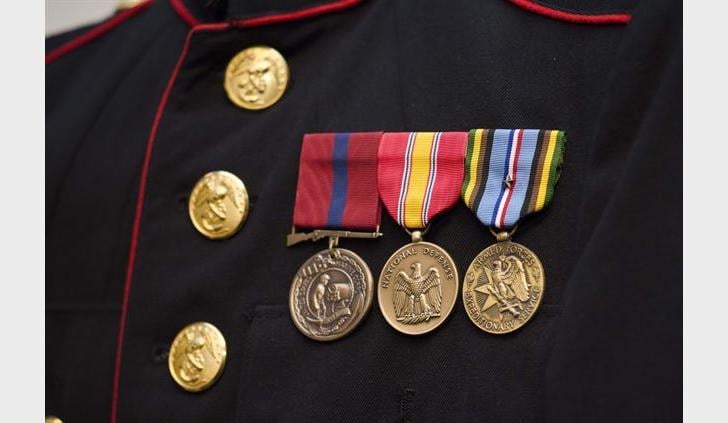
U.S. Air Force
Originally authorized in 1961, the Armed Forces Expeditionary Medal can be awarded to members of any branch of the Armed Forces. It recognizes not only participation in U.S. military operations, but also operations in support of the United Nations or of friendly foreign nations.
Global War on Terrorism Expeditionary Medal
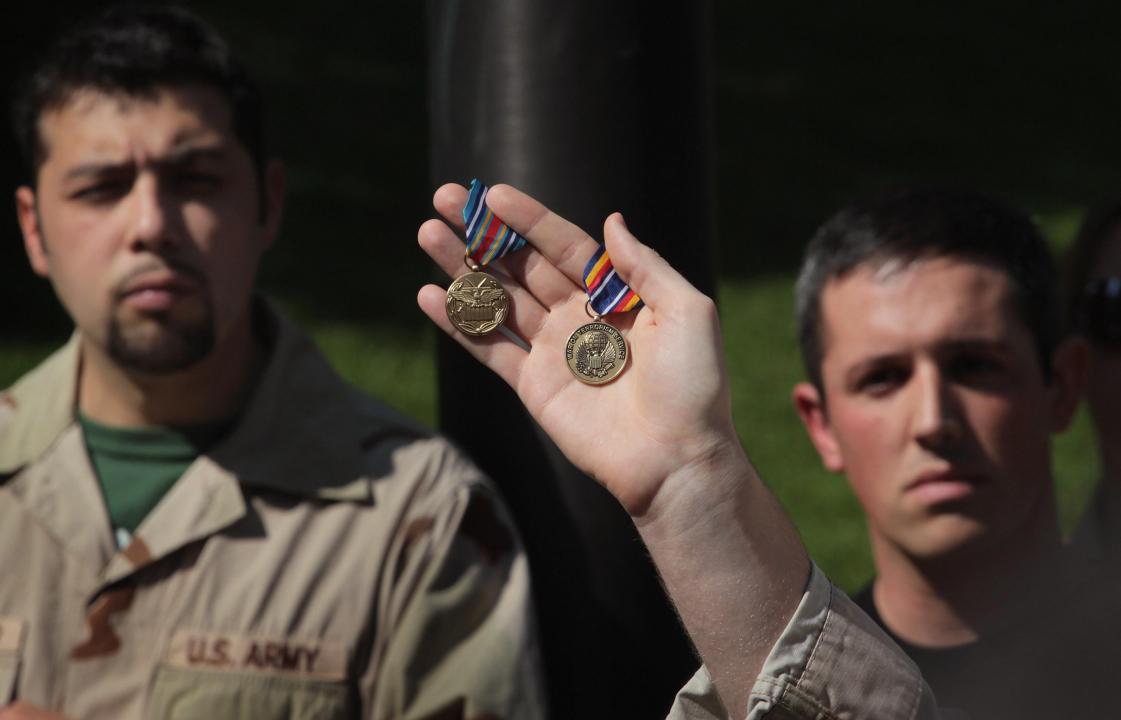
Getty Images
Created by President George W. Bush in 2003, the Global War on Terrorism Expeditionary Medal can be awarded to personnel deployed overseas on or after September 11, 2001. It includes active duty, Reserve, and Guard personnel deployed as part of Operation Enduring Freedom and Operation Iraqi Freedom.
Armed Forces Service Medal
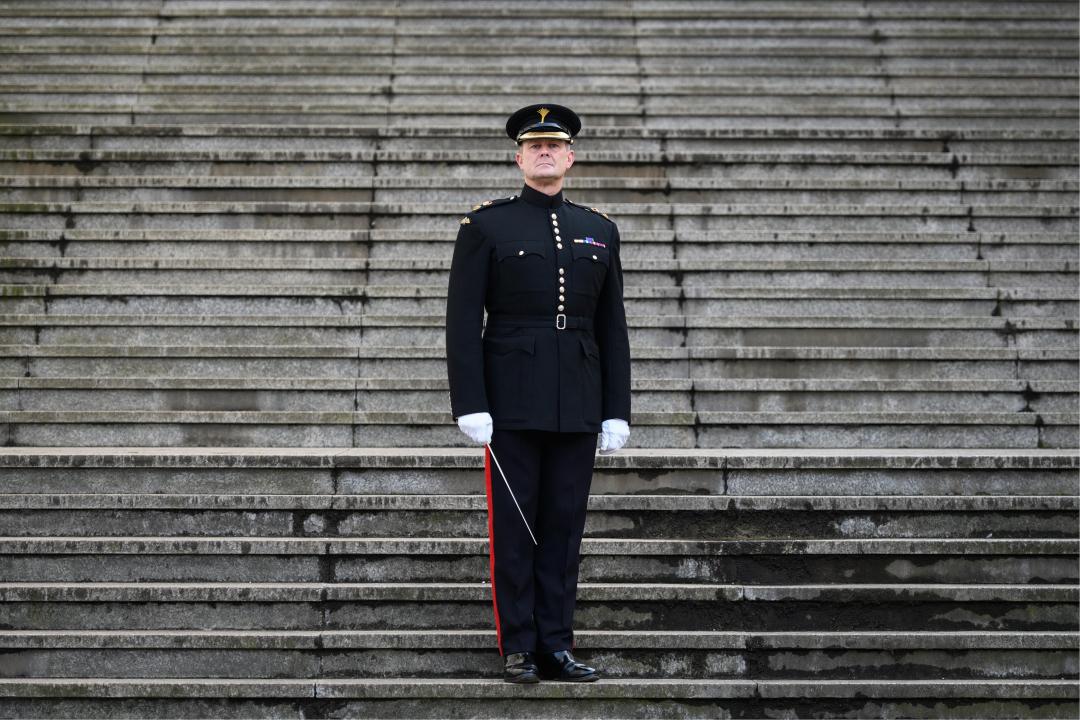
Getty Images
Members of all branches are eligible for the Armed Forces Service Medal if they served in peaceful U.S. operations that didn’t include imminent hostile action or foreign armed opposition where no other service medals were available. Service members can also receive the medal if they served in any one of several operations in the former Republic of Yugoslavia starting in 1992.
Good Conduct Medal
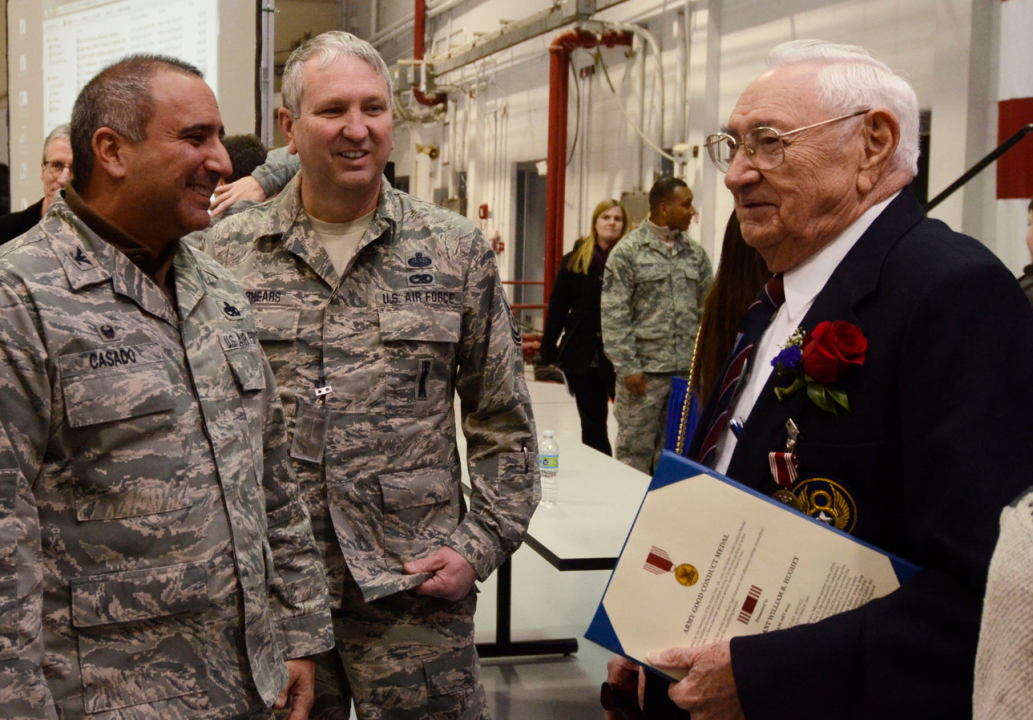
U.S. Air Force
All five branches award Good Conduct Medals. In the Air Force and Navy, this medal is awarded after three years of above-average service. The Army and the Marines don’t require a three-year minimum of exemplary service to qualify.
Humanitarian Service Medal
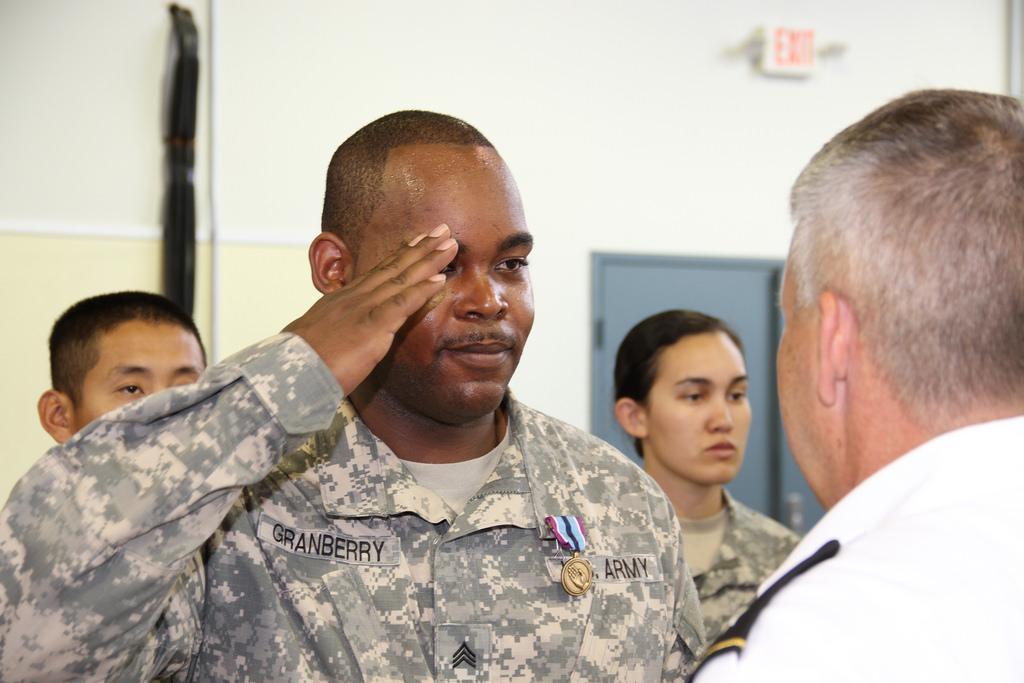
U.S. Army Corps of Engineers // Flickr
All military branches award the Humanitarian Service Medal. First authorized in 1977, the award is bestowed for direct participation in military-related humanitarian operations, like rescue operations and natural disaster relief.
Outstanding Volunteer Service Medal
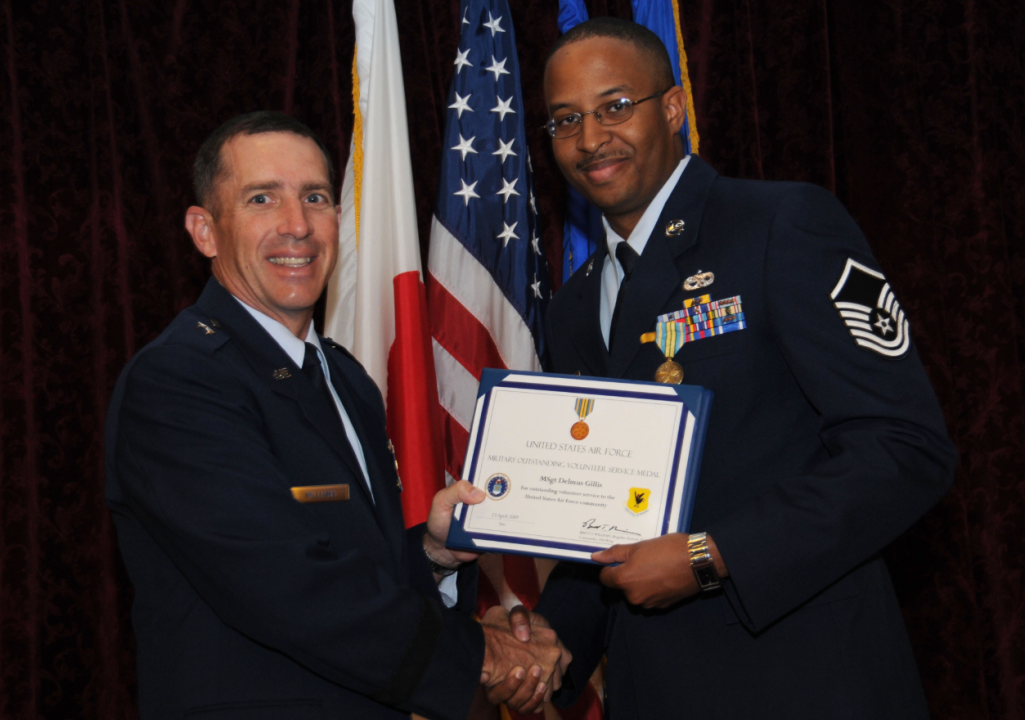
U.S. Air Force
The Outstanding Volunteer Service Medal honors members of the Armed Forces who volunteer in an ongoing capacity in a local community above what is required by their position in the military. It is awarded by all branches of the Armed Services.
Afghanistan Campaign Medal
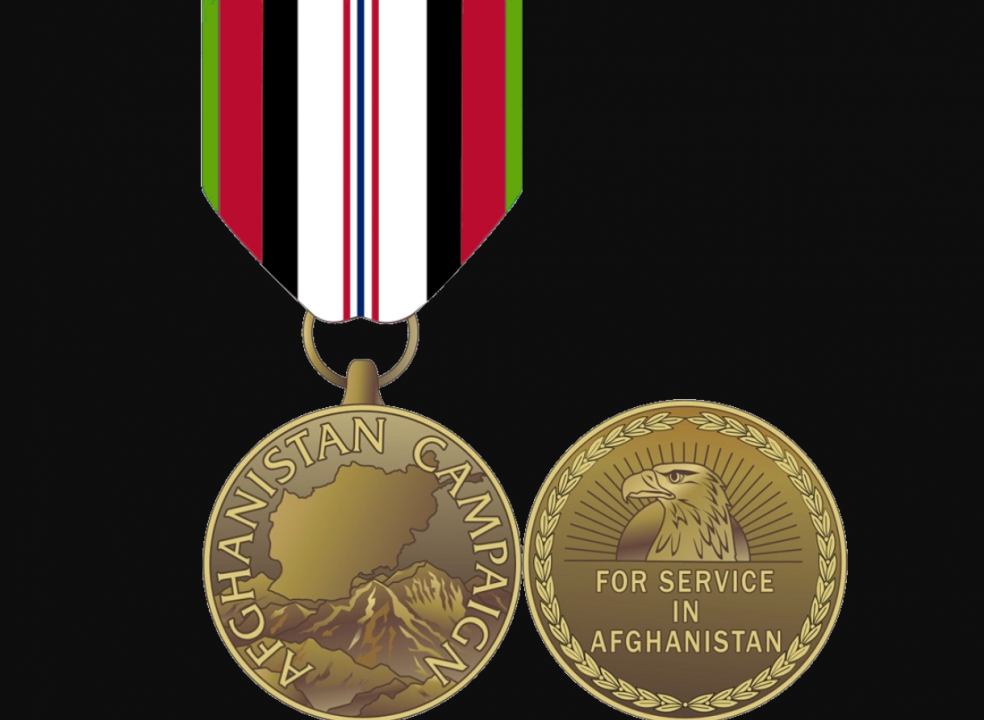
Defense Logistics Agency // Wikimedia Commons
The Afghanistan Campaign Medal was authorized in 2004. Eligible service members have to have been assigned or attached to units participating in Operation Enduring Freedom. One of several qualifying criteria includes 30 consecutive days or 60 nonconsecutive days of deployment.
Antarctica Service Medal
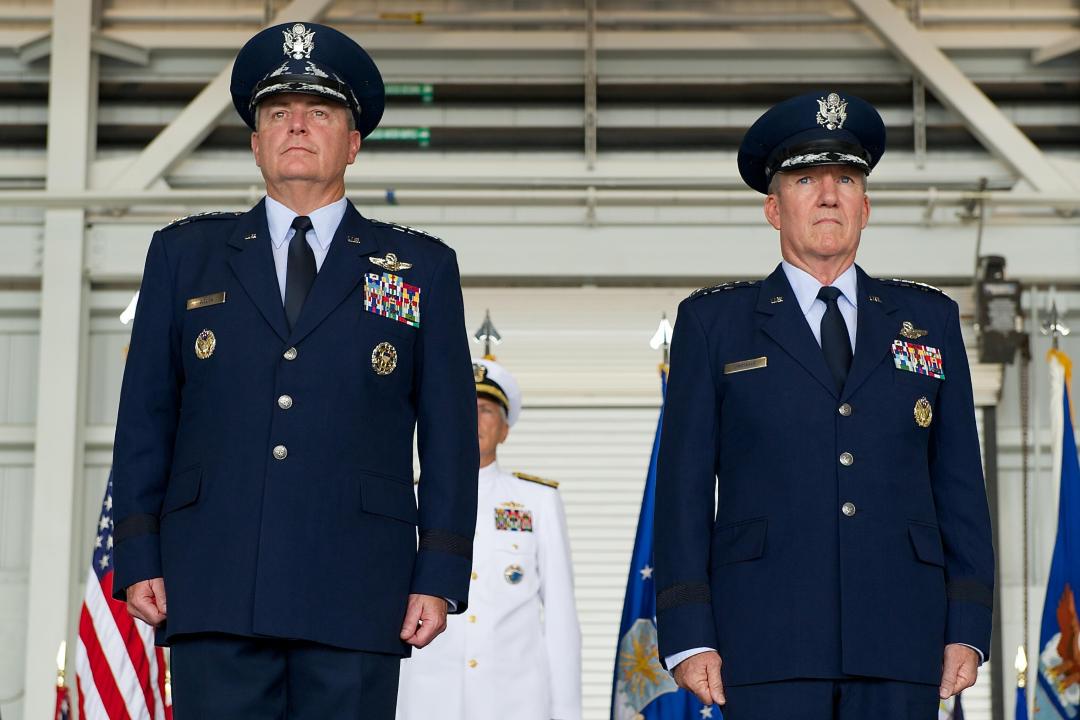
Joint Base Elmendorf-Richardson
Authorized in 1960, the Antarctica Service Medal is awarded for participating in an operation in Antarctica after January 1, 1946. It holds the rare distinction of including non-military U.S. citizens and resident aliens who supported U.S. operations there.
Air and Space Campaign Medal
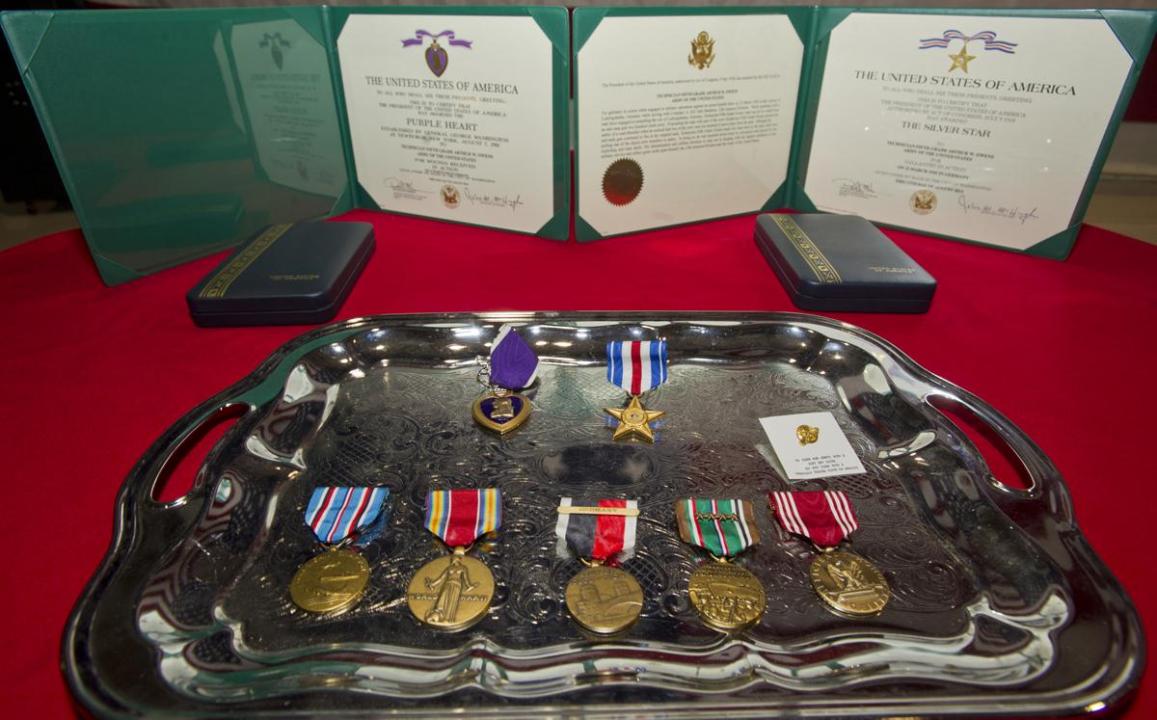
Joint Base Elmendorf-Richardson
The Air and Space Campaign Medal was authorized in 2002 and is issued by the Air Force. The medal is reserved only for personnel who provided direct support of combat operations from outside the combat zone’s geographic area.
